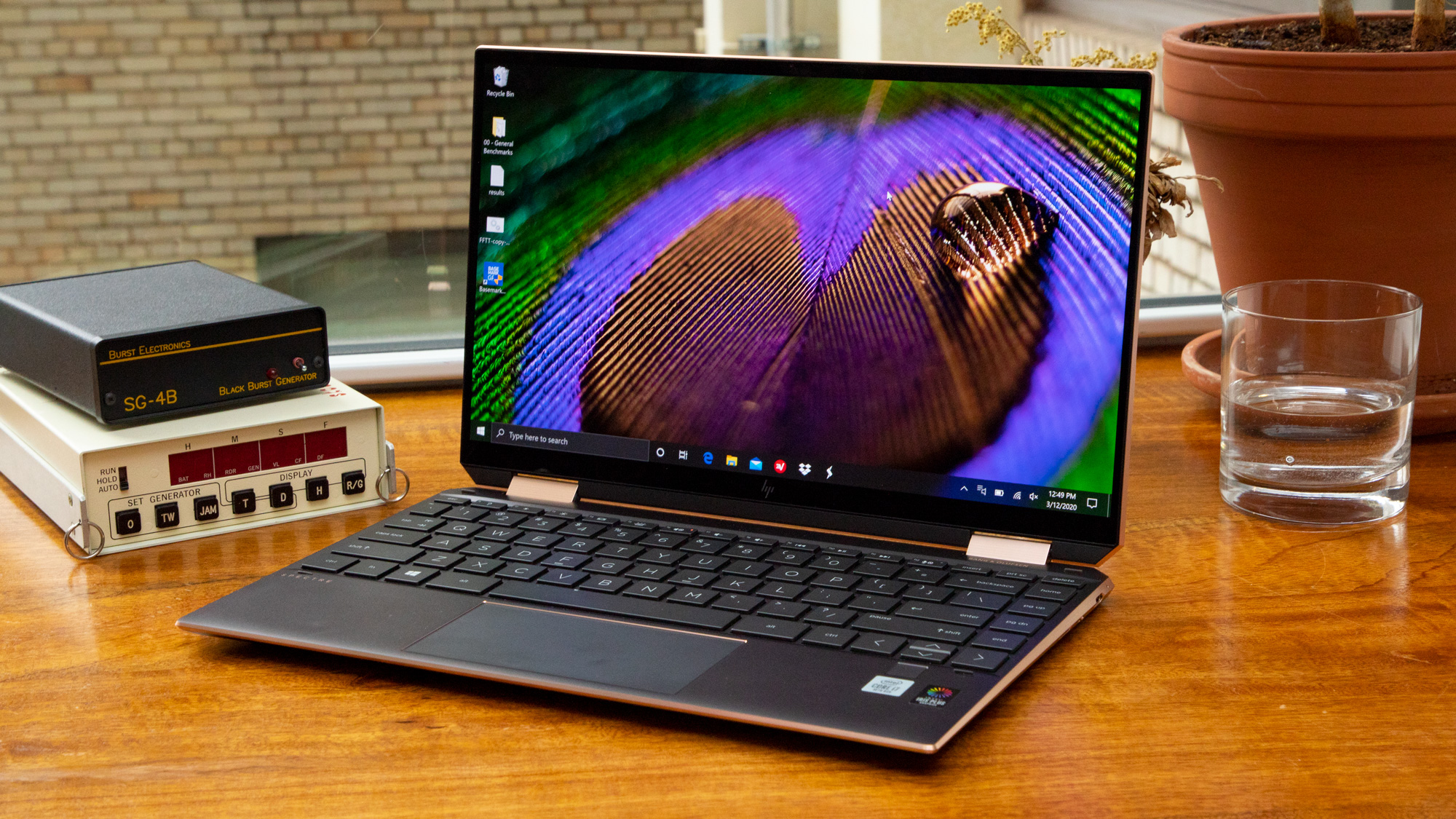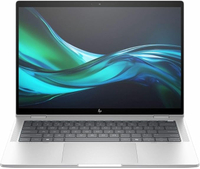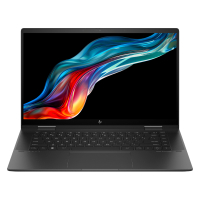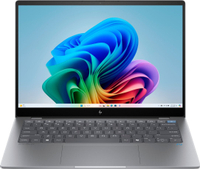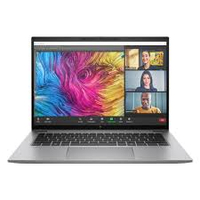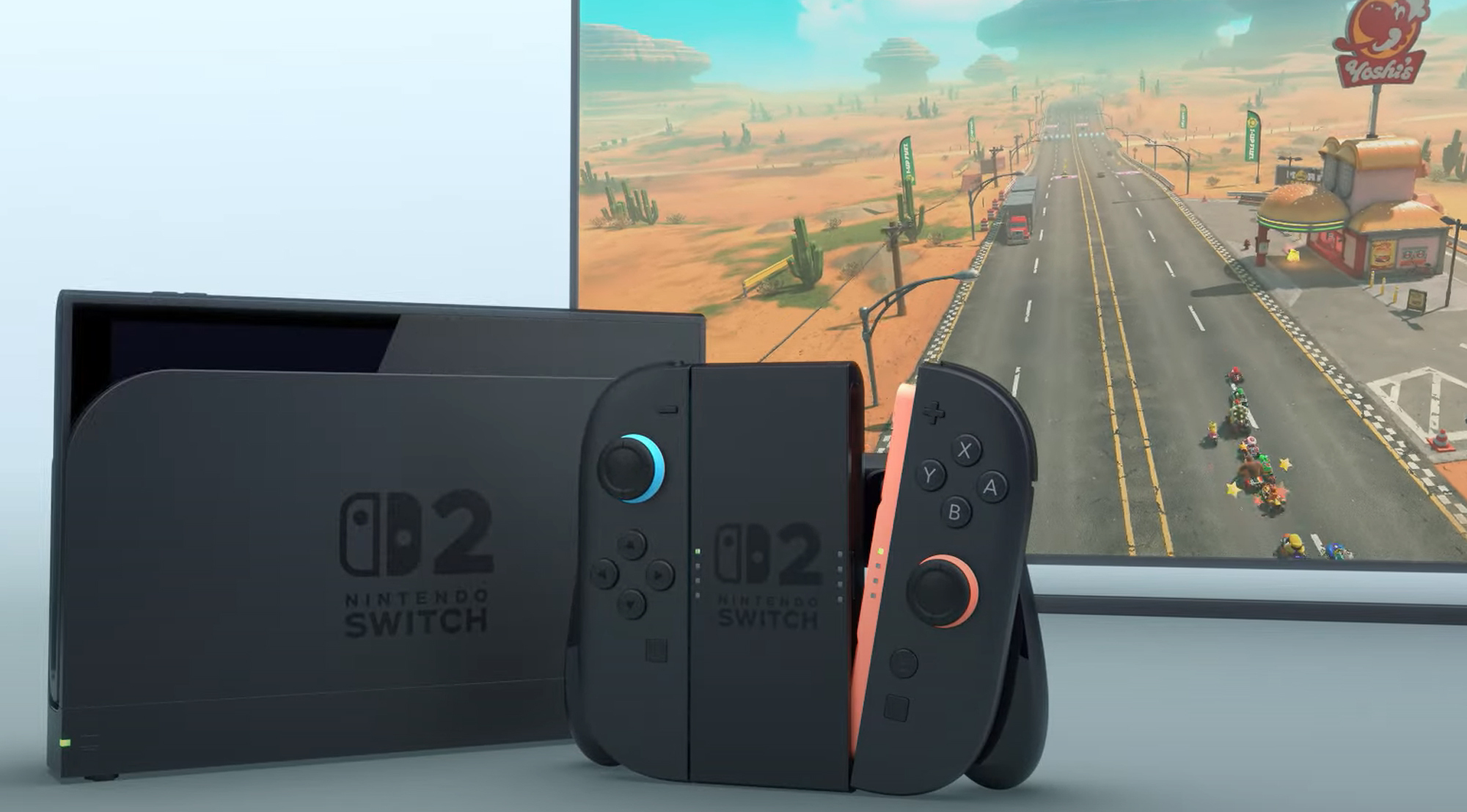Best HP laptops in 2025: 5 top HP laptops we've tested and reviewed
The best HP laptops, as reviewed by Laptop Mag
The best HP laptops are competitive in every category. They are some of the best laptops overall, so making a well-informed decision can feel like an arduous task — especially if you have a strict budget. I'm here to help you narrow down your list of potentials, and if you don't want to rip your hair out by the time you get to the end of my five recommendations, I'll take that as a compliment!
The highest-performing HP laptops we've recently tested include one of our top favorites, the HP Spectre x360 14. It's my pick for the the best overall HP laptop and the best 2-in-1 laptop across multiple categories and use cases.
It's a bit pricey when it's not on sale, but if your needs are simple and you want something equally reliable, the HP Envy x360 (2023) with an AMD Ryzen 7 processor is still our favorite budget-friendly laptop.
On the business side, I recommend checking out the HP EliteBook Ultra G1q with a Snapdragon processor. Laptops with these chips are known for their incredible performance and long battery lives, and the EliteBook Ultra is no exception. App compatibility with Windows on Arm has also significantly improved since this and other Copilot+ PCs were released in the summer of 2024.
This page is consistently updated based on our latest reviews to reflect Laptop Mag's picks for the best HP laptops in 2025.
The Quick List
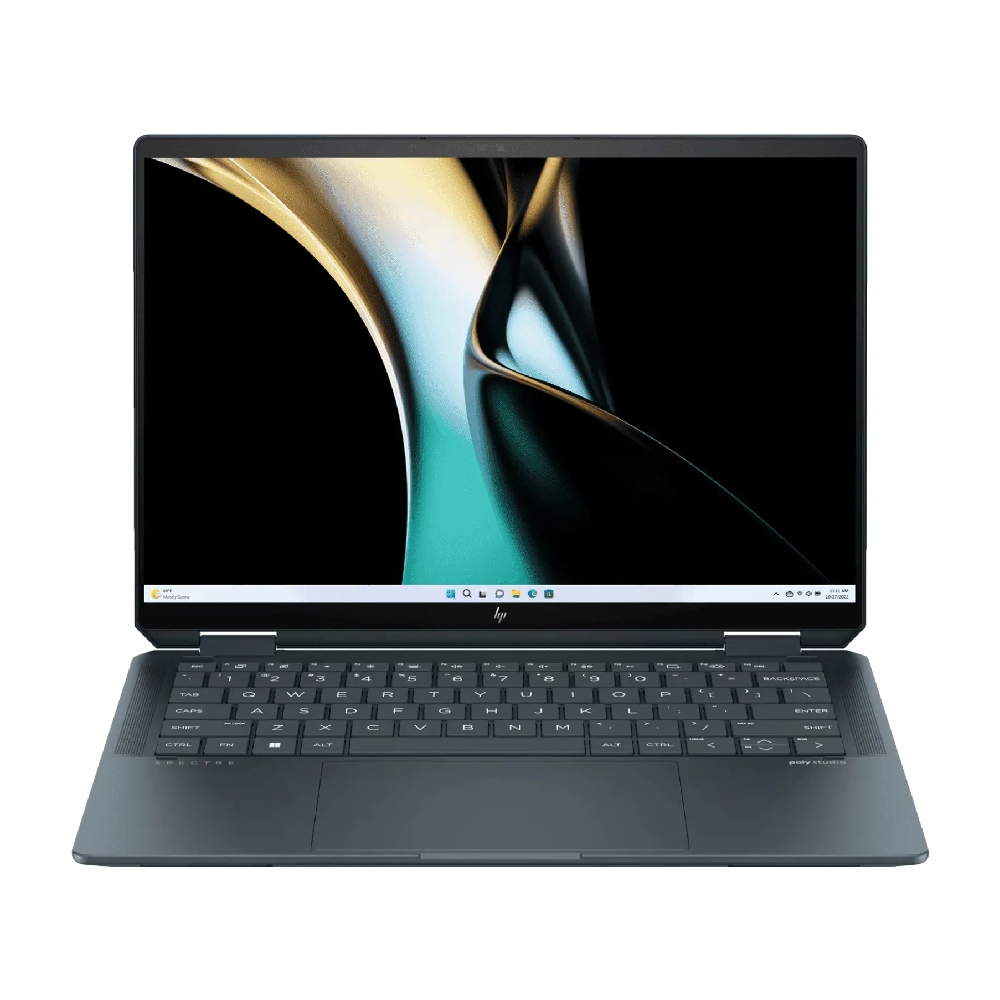
The Spectre x360 14 is the best 2-in-1 you can grab from HP for its versatility and performance.
Read more below
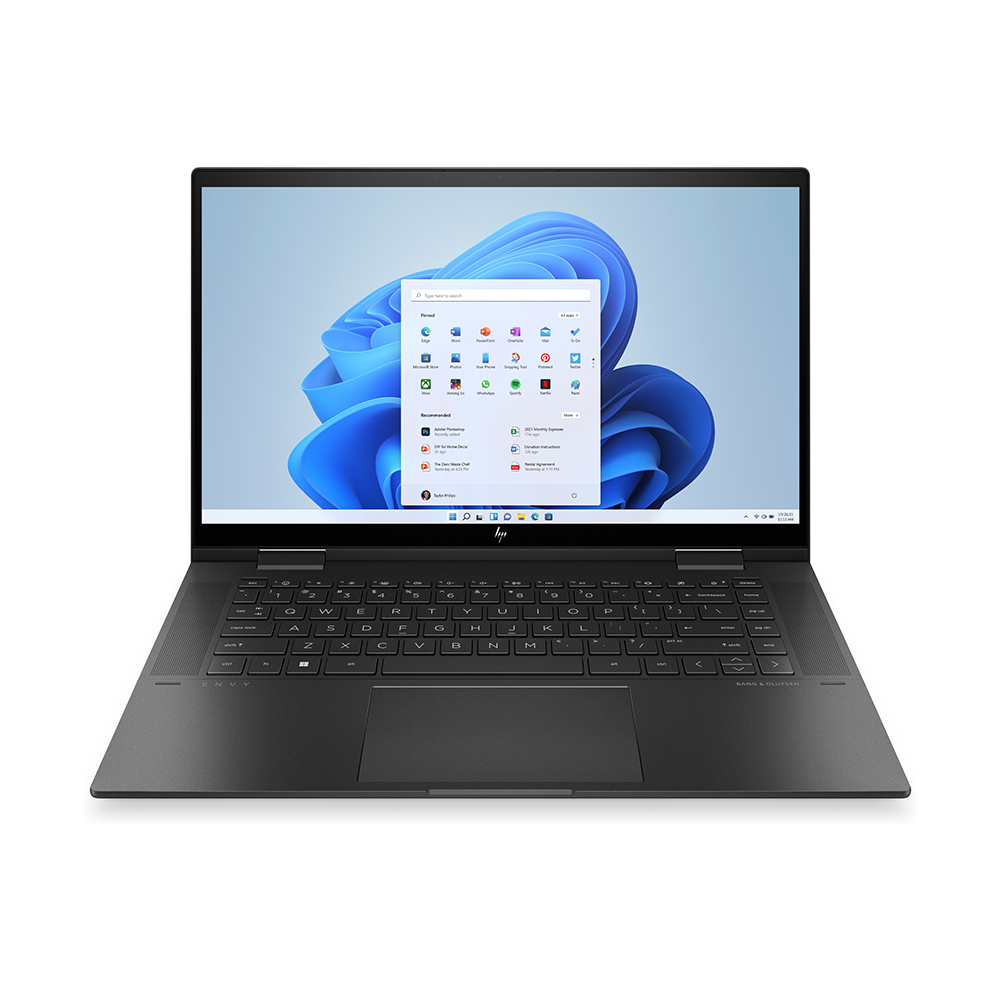
This two-year-old model is still a fantastic, budget-friendly laptop with solid performance and a stunning OLED display.
Read more below
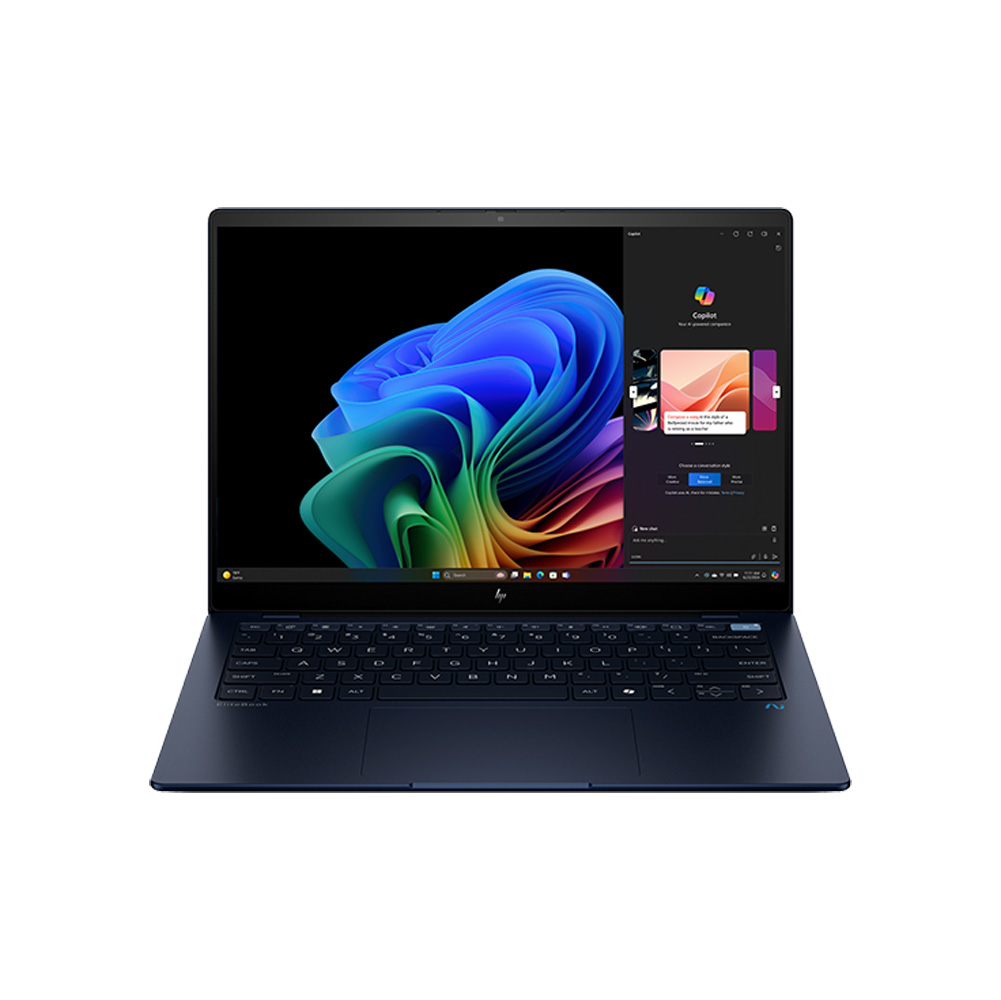
This laptop offers a fast Snapdragon X Elite processor, Copilot+ PC apps and features, and upgraded HP Wolf Pro Security.
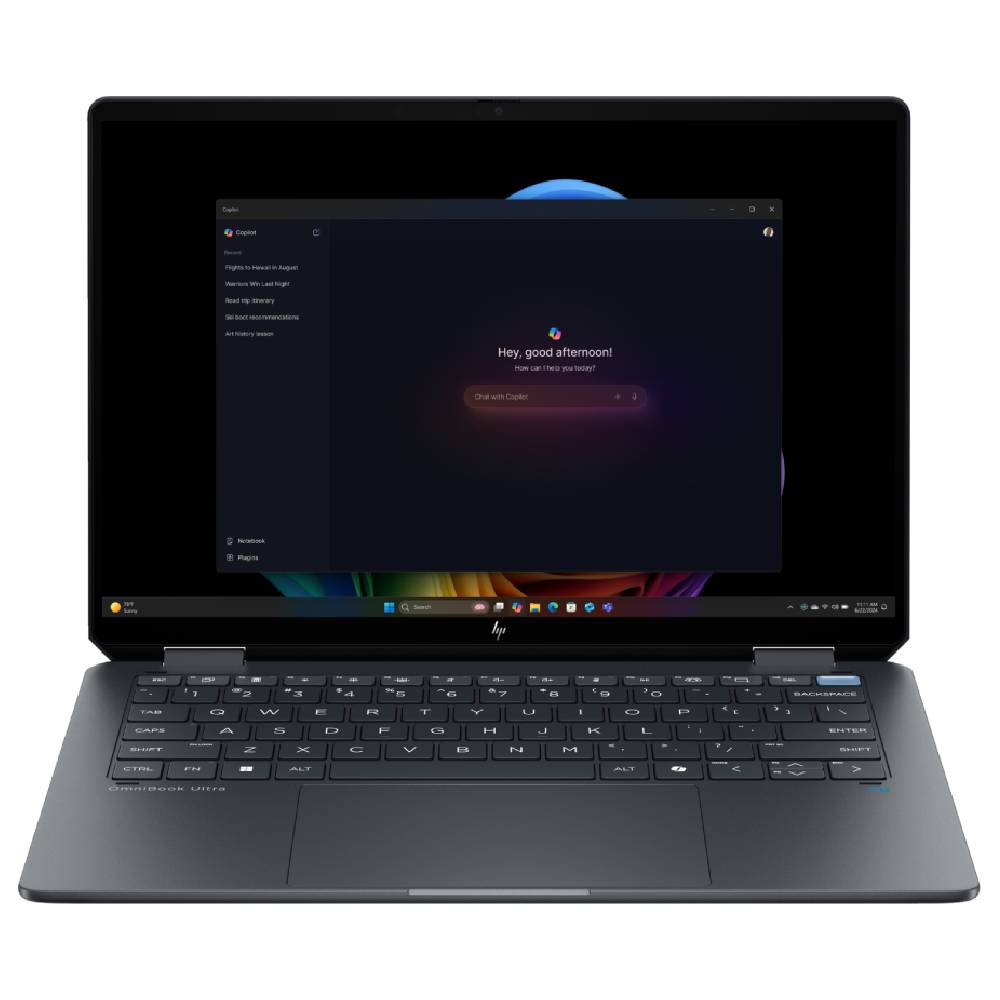
This 2-in-1 laptop has the versatility, battery life, and vibrant display students usually need to get through an entire day of classes.
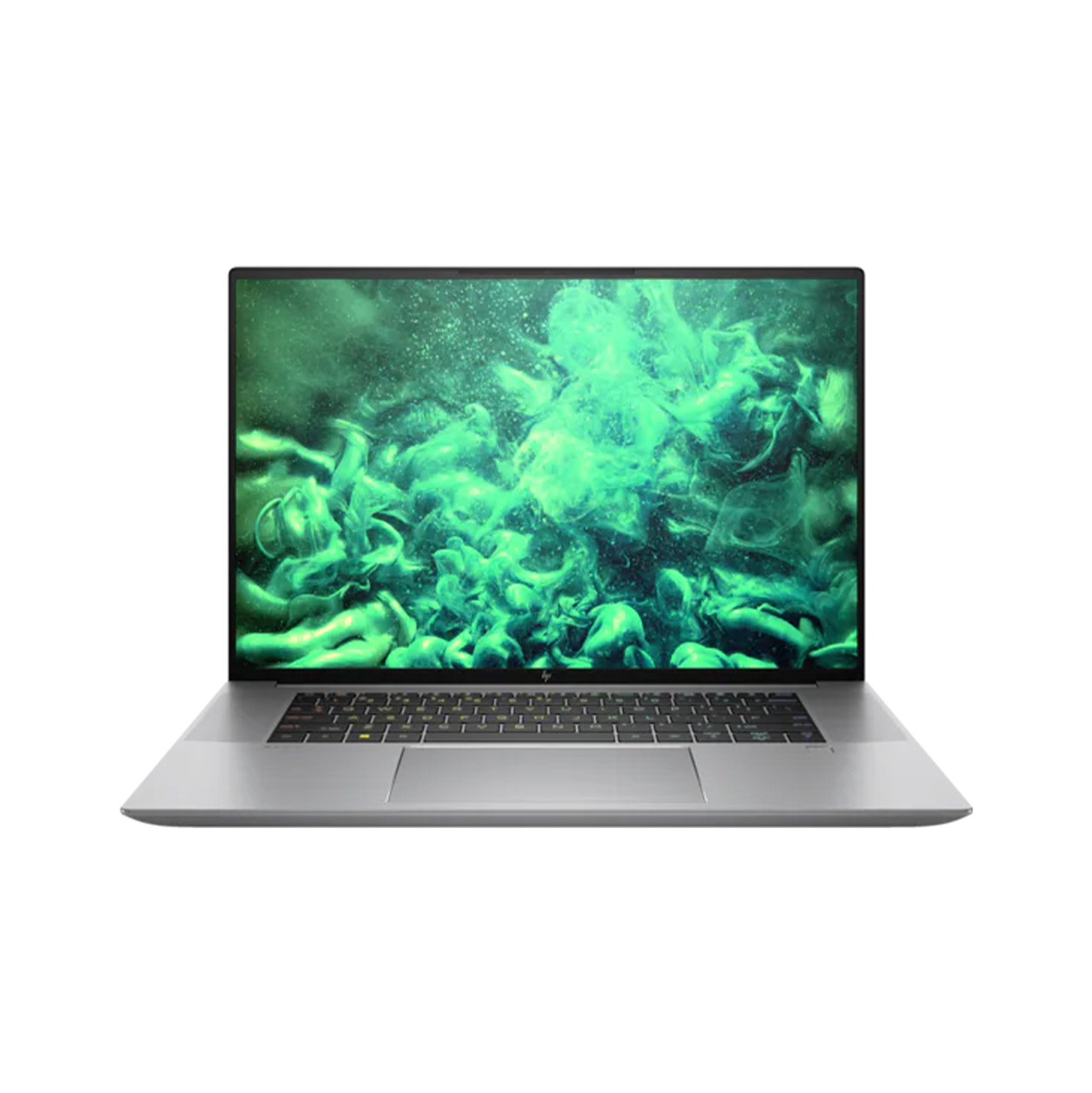
This expensive but powerful workstation offers stunning visuals and audio with well-optimized performance.

Joanna Nelius has reviewed laptops and computer hardware since 2018. Her work has appeared in The Verge, USA Today, Gizmodo, PC Gamer, and Maximum PC. She holds an MFA from Chapman University and works as a creative writing instructor.
Best overall
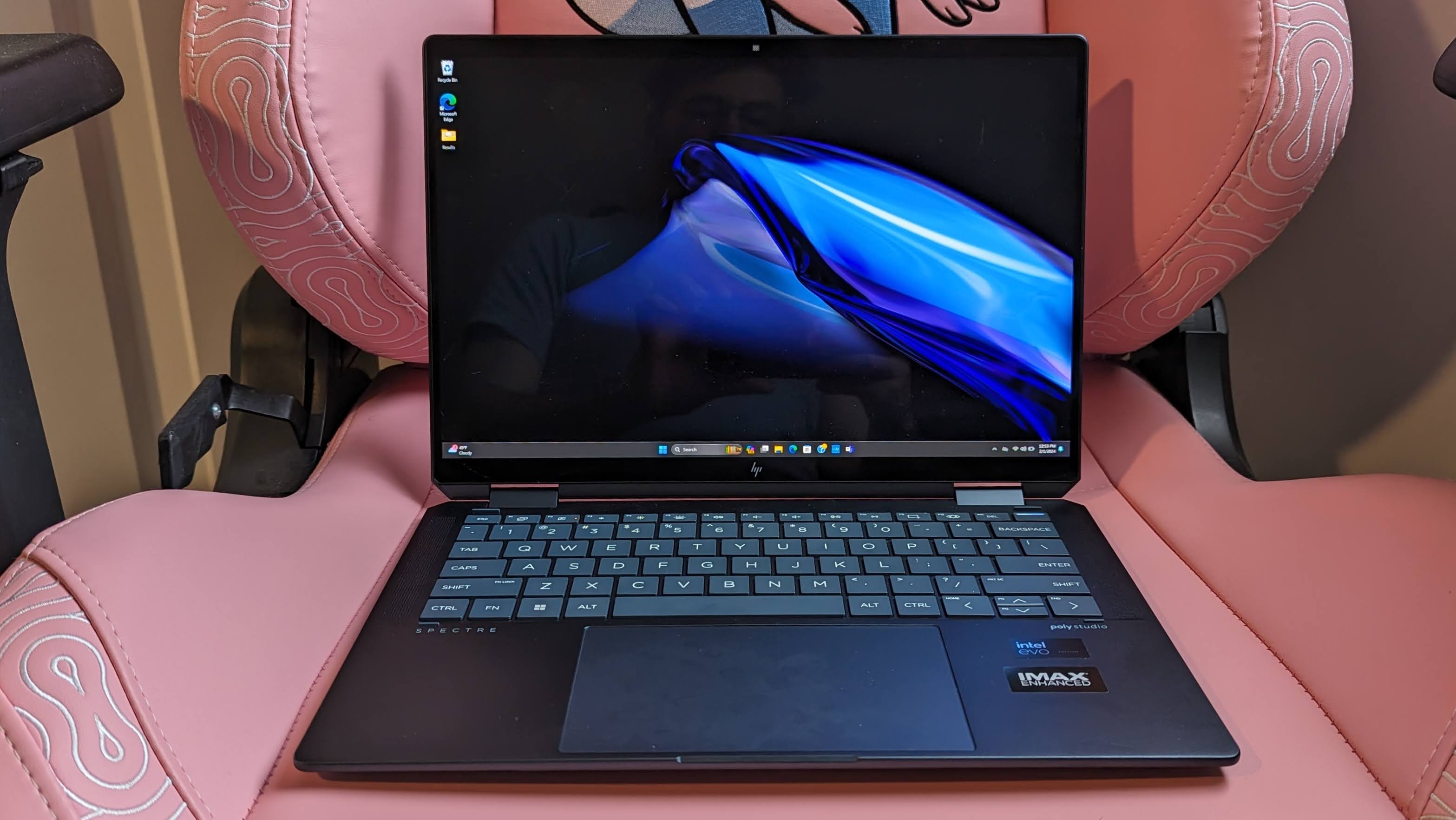
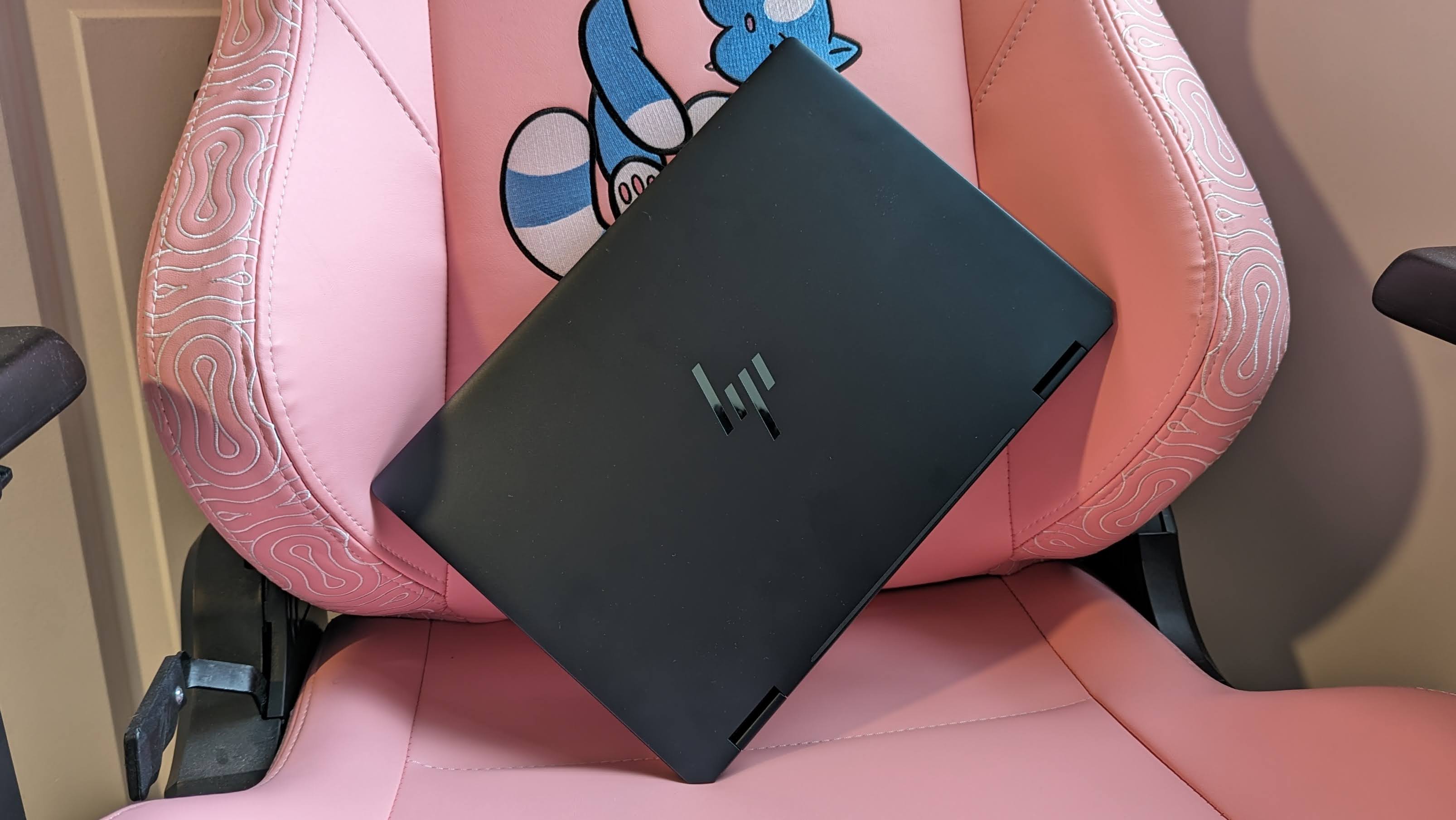
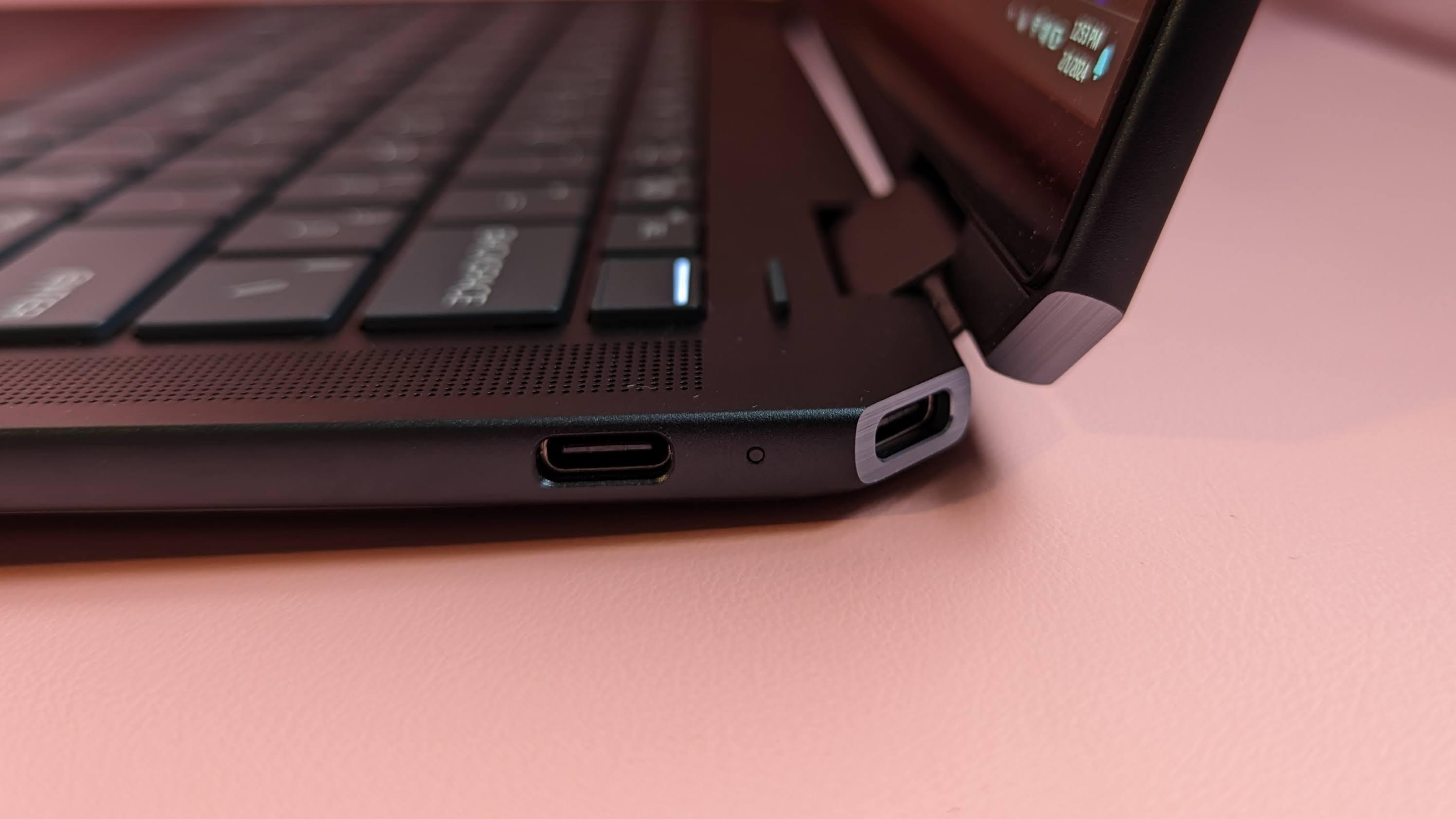
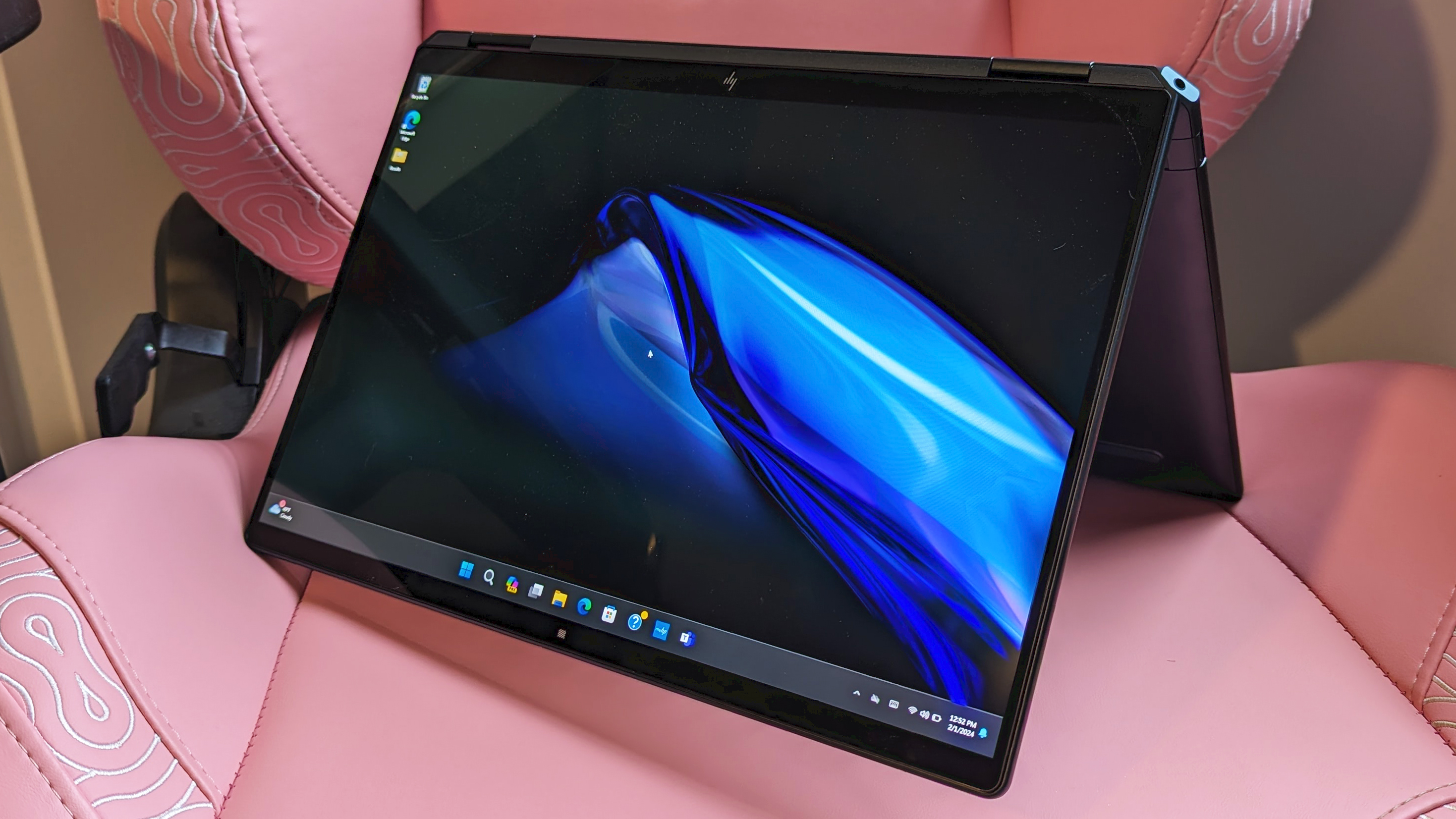
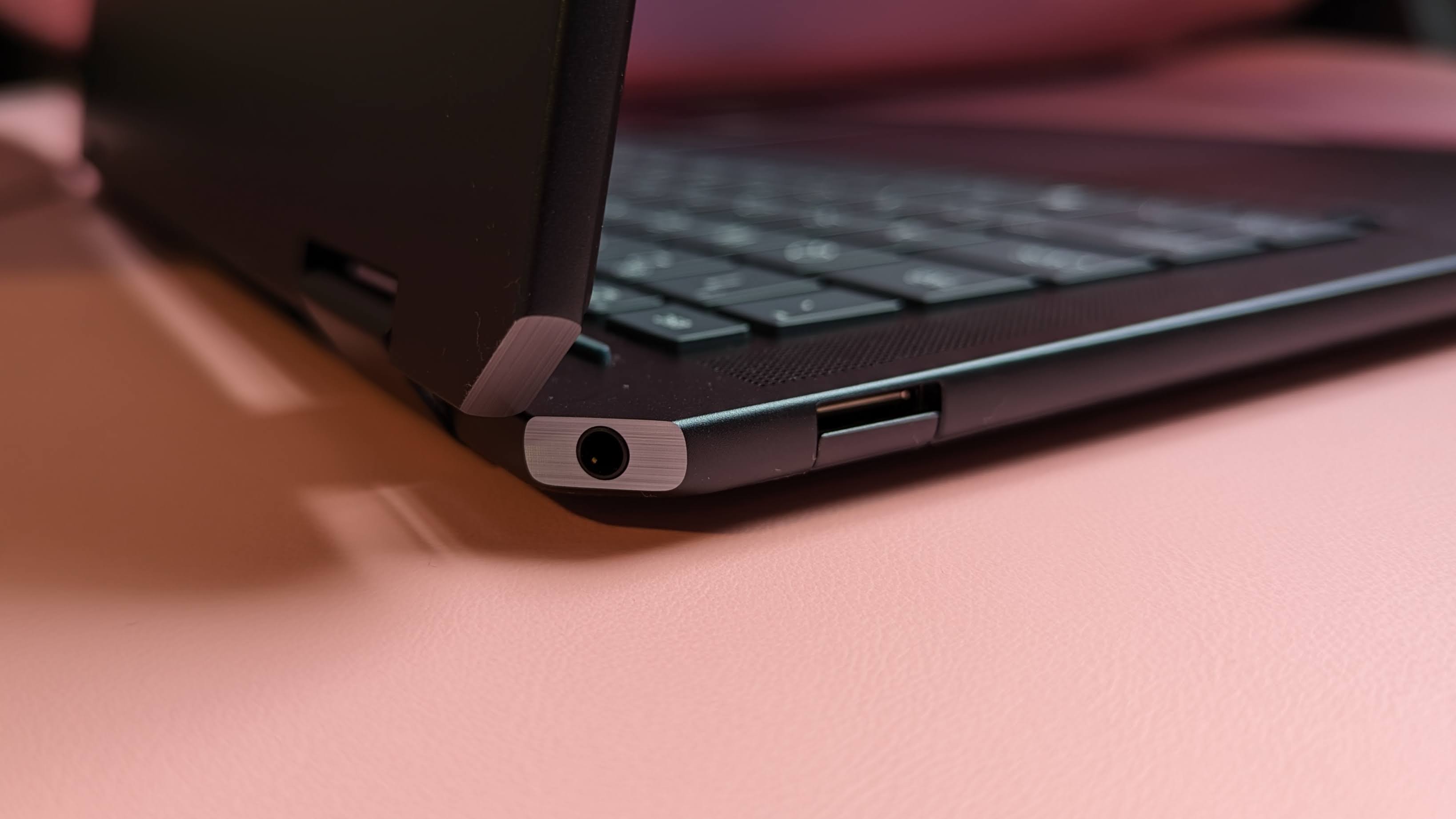
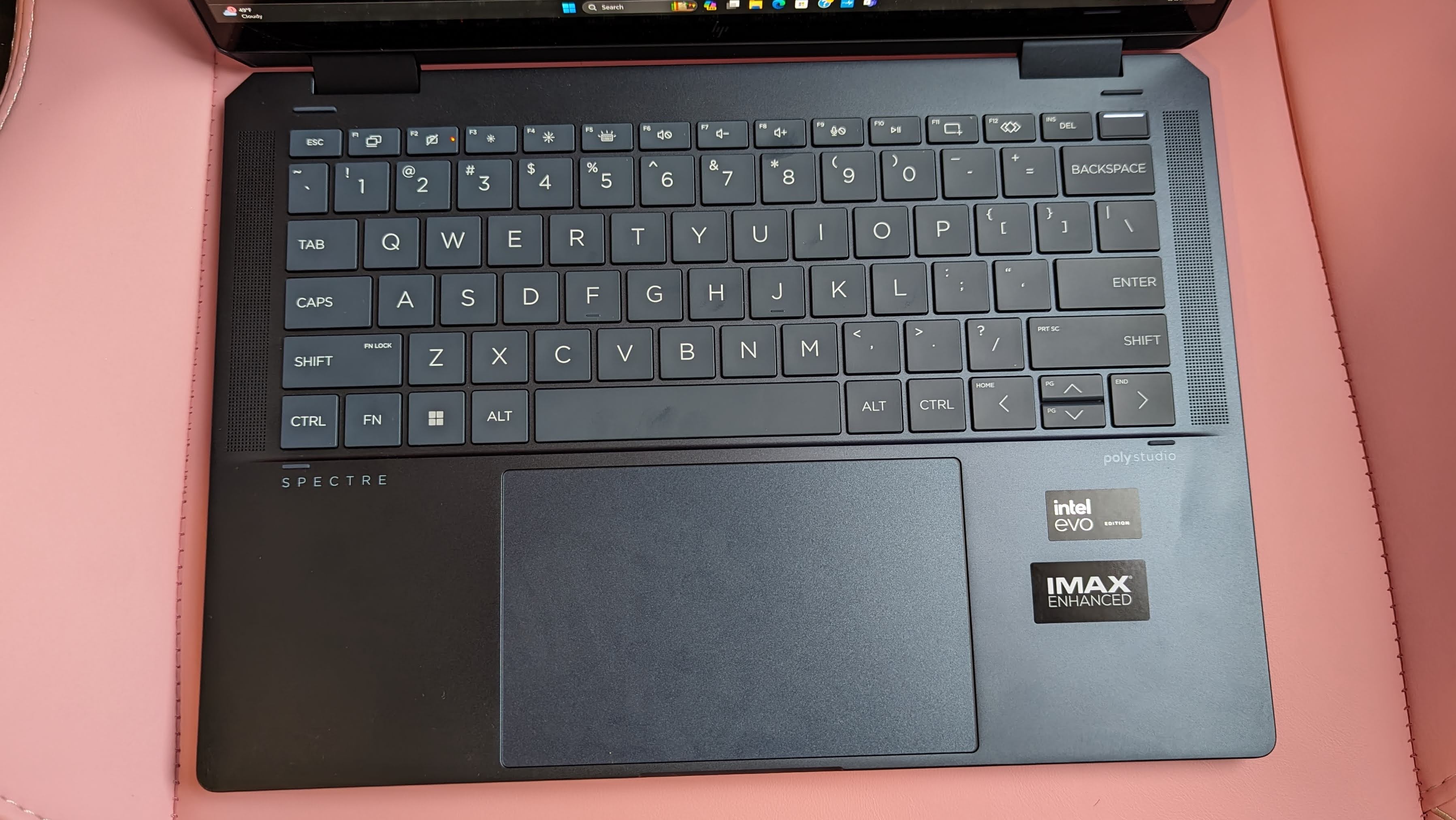
Specifications
Reasons to buy
Reasons to avoid
The HP Spectre x360 14 (2024) is a 2-in-1 laptop packed with versatility. Its fast processor makes it a fabulous multitasking buddy. Its OLED display makes the colors of your favorite shows pop. Its speakers can immerse you in your favorite song. And if you feel like drawing, grab your stylus and flip the lid back — you now have a tablet.
✔️ You like subtly beautiful laptop designs. The Spectre has rounded edges, a dual-hinged display, large keys, and a deep blue colored chassis. It's neither ostentatious or bland.
✔️ You know quality doesn't come cheap. But every penny you spend on this laptop's performance, battery life, vibrant display, great speakers, and good looks will be well-spent.
✖️You need something with perfect color accuracy. While perfectly fine for the average user, its display doesn't cover the full DCI-P3 gamut. This could create issues for artists, designers, video editors, and anyone else who routinely works with that color space.
✖️ You don't want to buy a docking station. Besides a power port, this laptop has only one USB-A port and two USB-C ports.
Laptop Mag highly regards the HP Spectre x360 14 (2024). It appears on a few other buying guides as the best 2-in-1 laptop for a very good reason: it's near-perfect, offering the most consistent balance between performance, battery life, design, audio, keyboard clickiness, a 4K webcam, and a gorgeous display.
HP built the 2024 Spectre x360 14 with a powerful Intel Core Ultra 7 155H processor, 32GB of RAM, 2TB of SSD storage, a 2.8K OLED touchscreen, and 11 hours of battery life packed into a 14-inch chassis. That's incredible on its own, but it's staggering that it's only $1,858 — and we've seen it go on sale for hundreds of dollars less.
On the Geekbench 6.1 overall performance test, its 12,358 multicore score was far above the average premium laptop's (8,443). Its SSD speeds are also decent, transferring 25GB of data at 1,362 megabytes per second, which is close to the average (1,378 MBps).
The Spectre doesn't have the brightest or most colorful touchscreen, though. Its display reaches 366 nits of brightness, lower than the average touchscreen (431 nits). It also covers 85.8% of the DCI-P3 color gamut, below the average premium laptop (98.5%).
However, its OLED panel still filled the Road House (2024) trailer with "expected vibrance," reviewer Rami Tabari writes in his review.
See our full HP Spectre x360 14 (2024) review.
Best budget
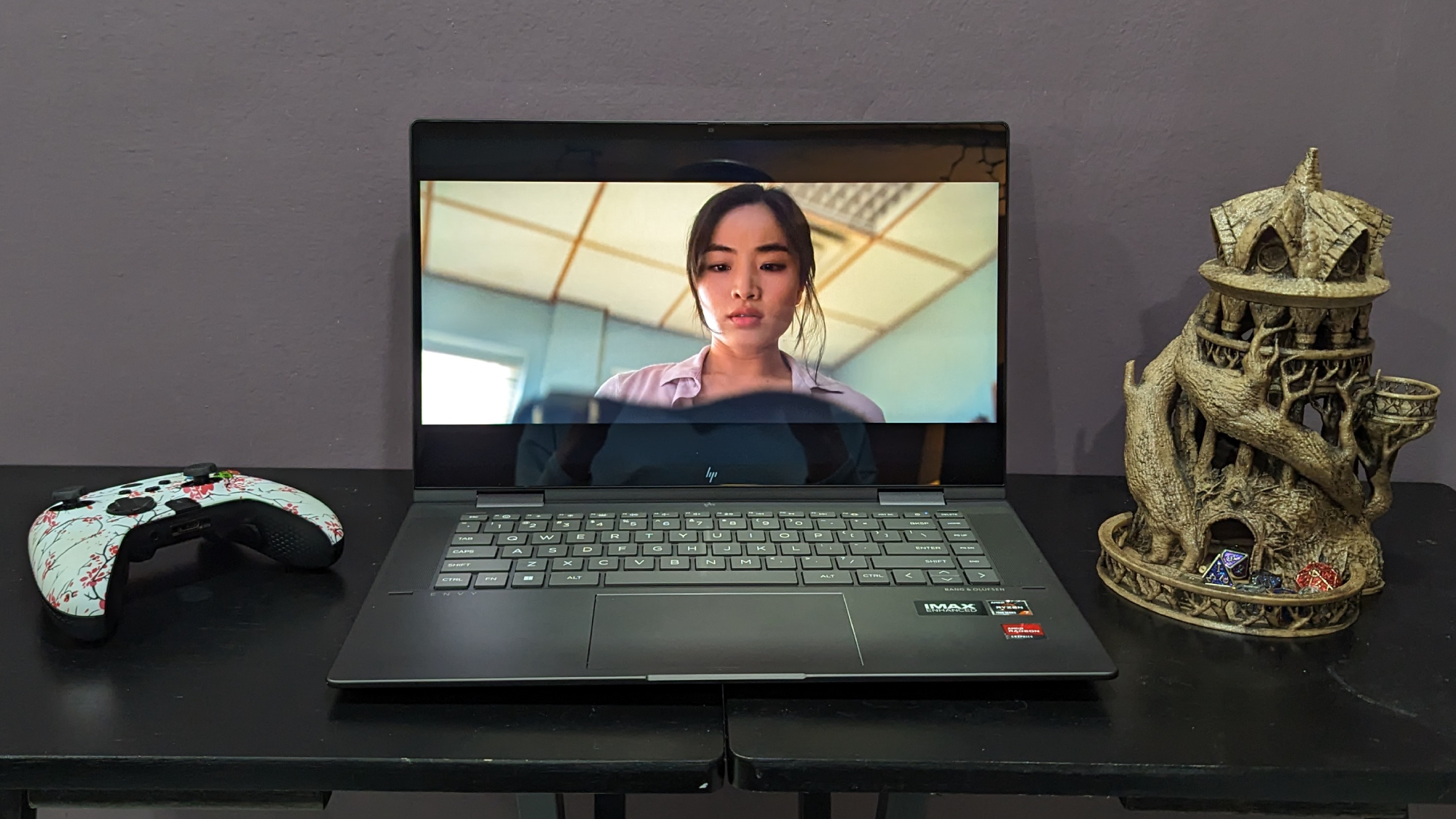
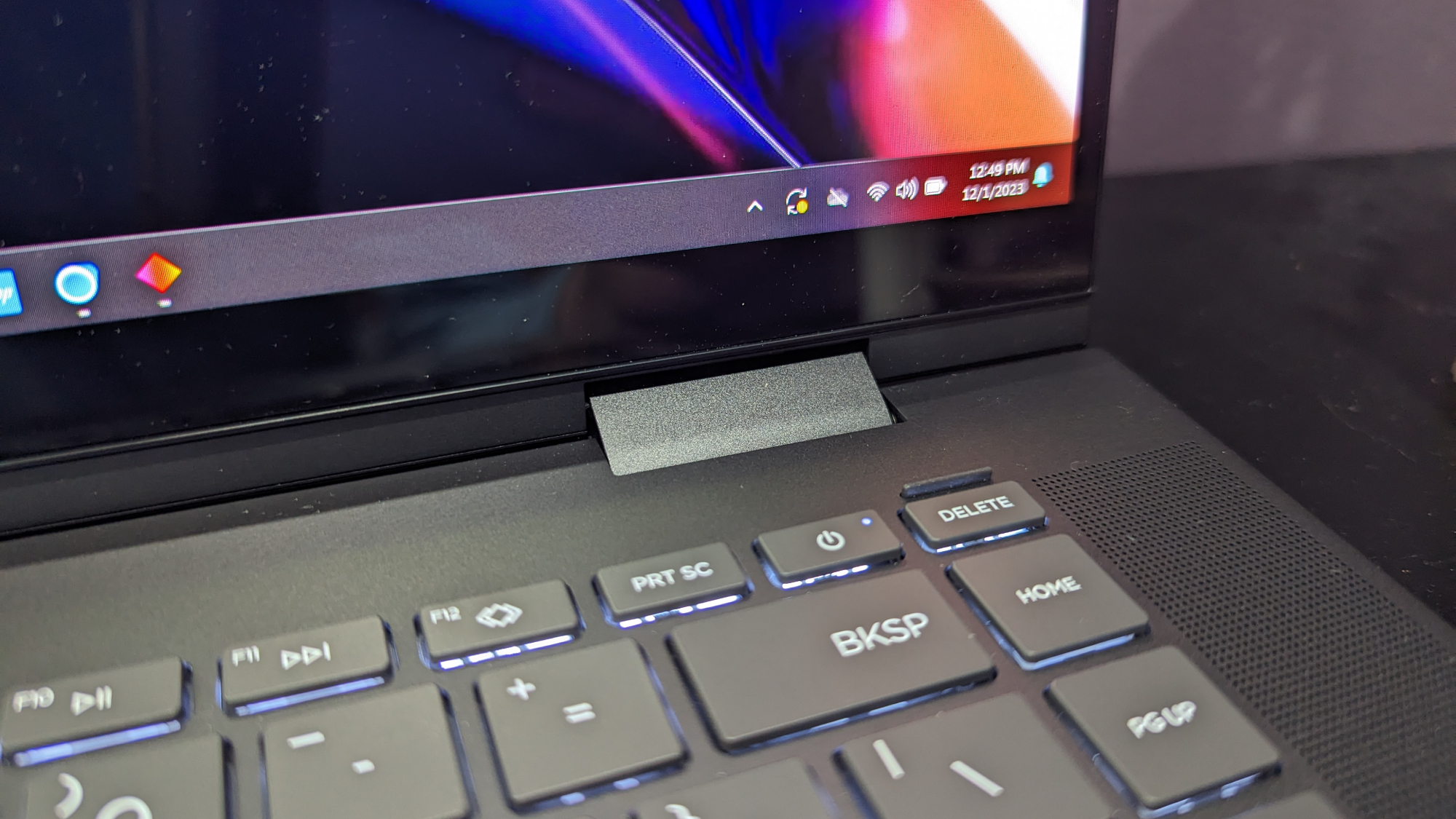
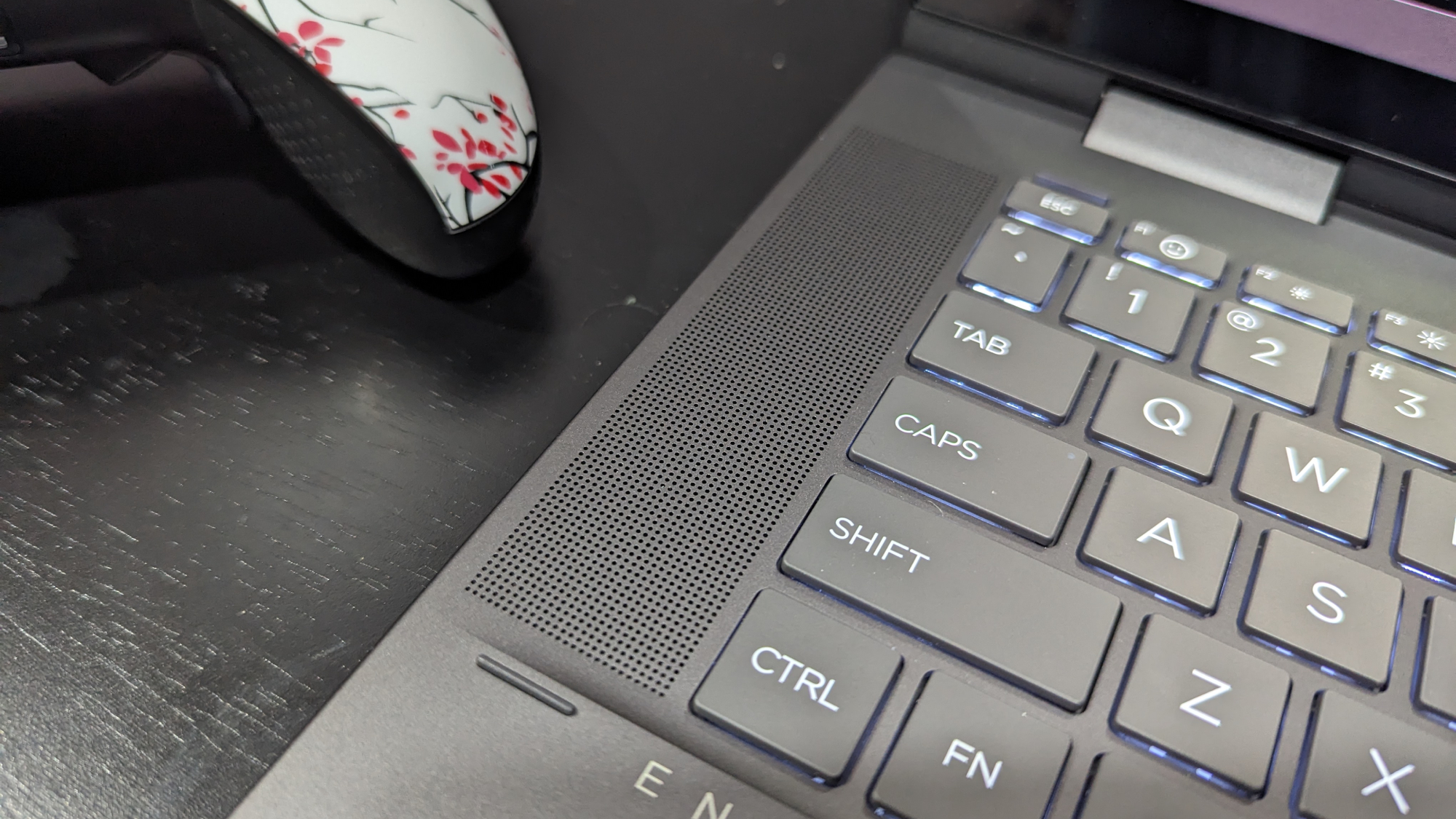
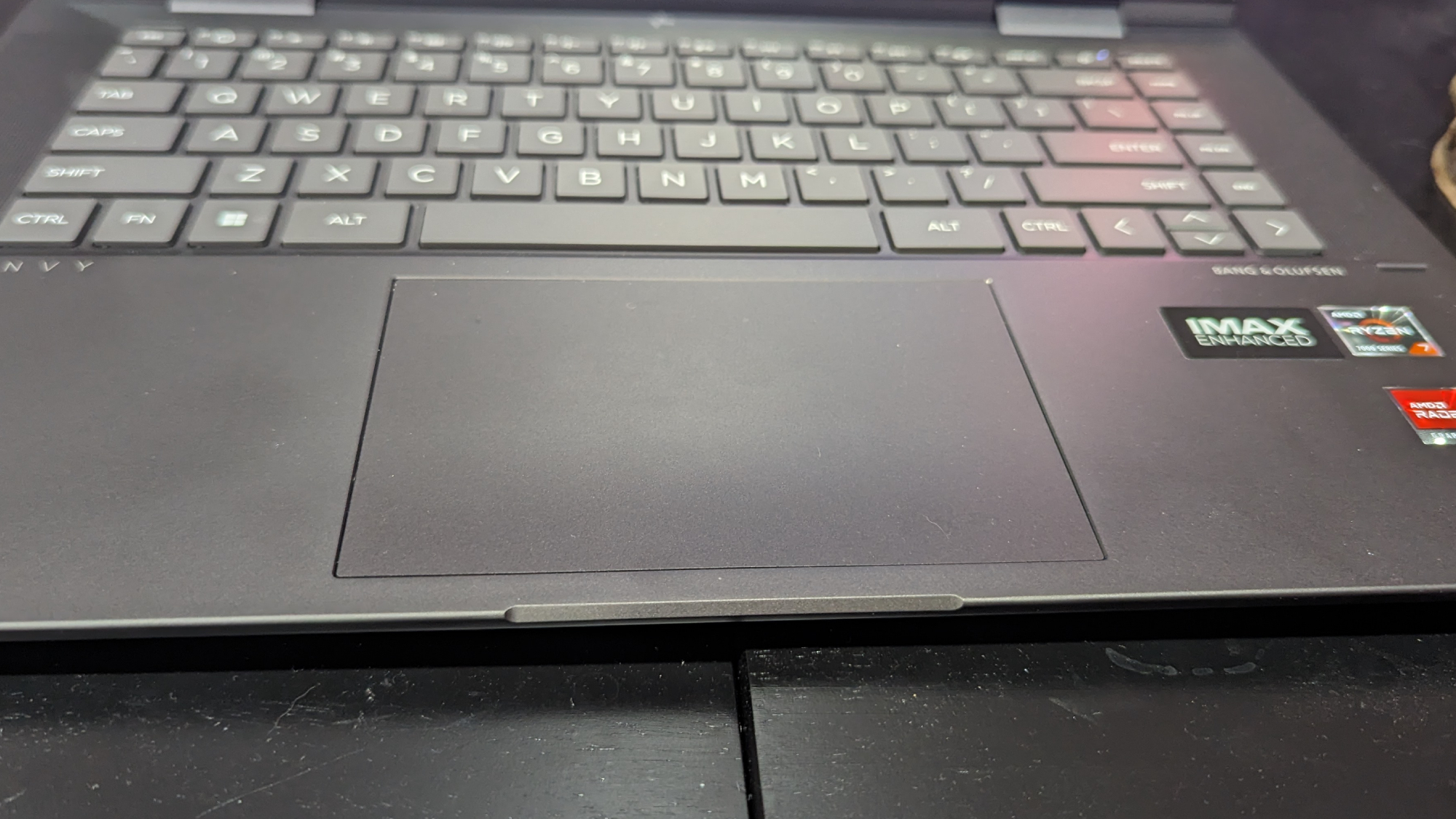
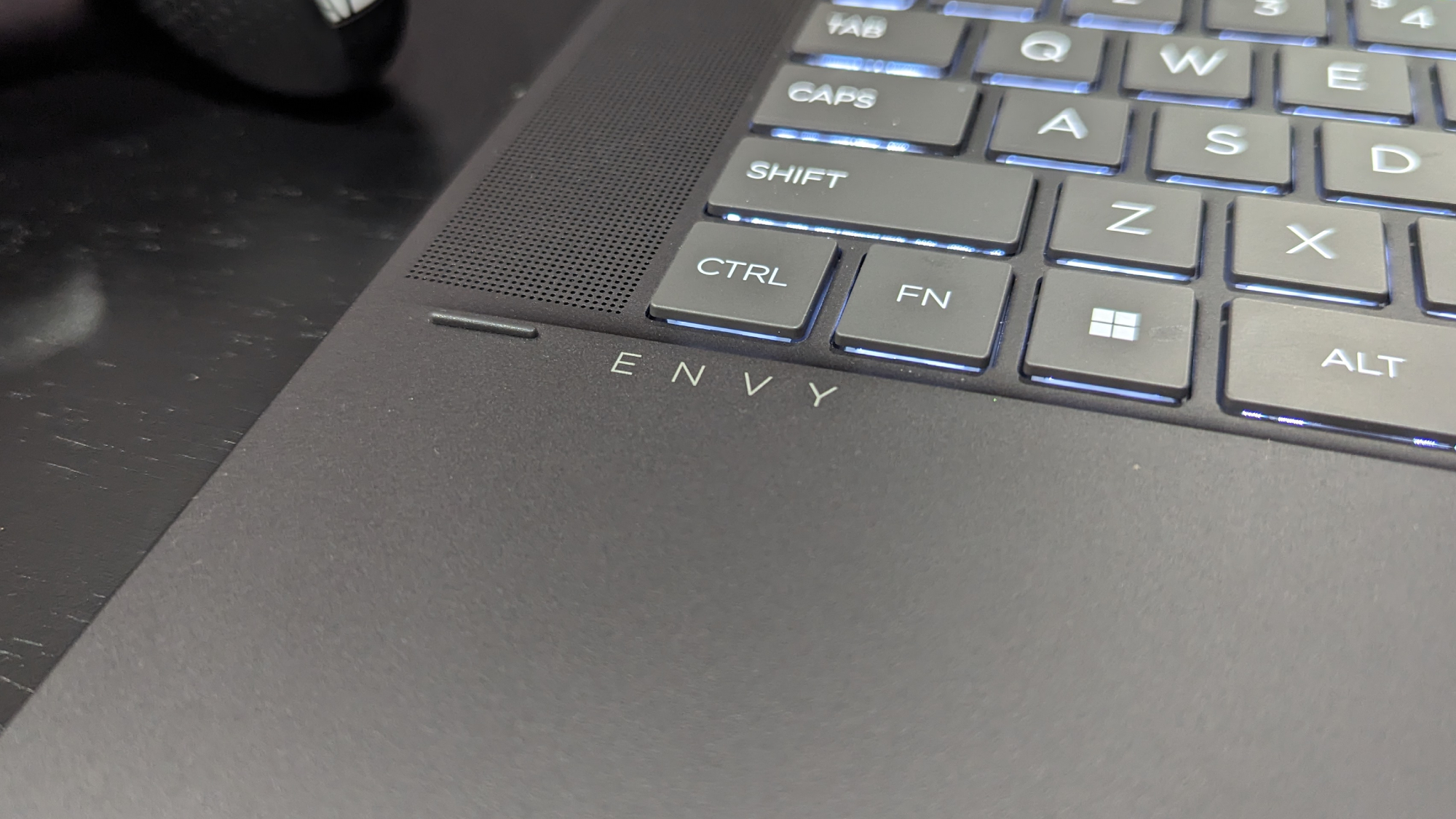
Specifications
Reasons to buy
Reasons to avoid
The HP Envy x360 2-in-1 offers a lot for an "old" laptop: fast multitasking performance, a bright and vivid OLED display, a great keyboard, and a clear webcam.
✔️ You spend a lot of time on video calls. This laptop's 1440p webcam captures colors accurately and makes everything look clear and crisp. You probably won't need to spend extra money on an external webcam.
✔️ You do a lot of typing. This clicky, comfortable keyboard is designed for near-constant use. It's a treat for your fingers.
✖️ You hate using external mice. The laptop's trackpad is sluggish, and its surface isn't smooth either.
✖️ You lack easy access to a wall outlet. While its battery life isn't terribly short, it's not exactly long, either; 9 hours might be enough for a full day of work and a movie or two, or it might not.
Even with the tradeoffs that generally accompany a budget laptop (especially one released two years ago), the Envy x360's quality and reliability are not diminished. With multiple configurations starting way below $1,000, it is a sleek, dependable all-rounder accessible to a broader range of budgets.
The Envy x360's AMD Ryzen 7000-series processor delivers solid performance and great efficiency. Backed by 16GB of RAM and 1TB of storage, its strengths lie in multitasking and typical daily use — don't expect its integrated graphics to do any heavy lifting.
What makes the Envy x360 more of a steal than a bargain is its impressive 15-inch OLED display. It crushed Laptop Mag's display tests, reproducing 128.1% of the DCI-P3 color gamut and sailing past the category average of just 85.5%!
However, that vivid OLED panel does have one downside: it impacts the Envy's battery life, which measured just 9 hours and 17 minutes in our tests. Our reviewer, Claire Tabari, wasn't impressed with the trackpad, but neither "ruin the laptop." The HP Envy x360 is still a great pick.
See our full HP Envy x360 2-in-1 (2023) review.
Best business
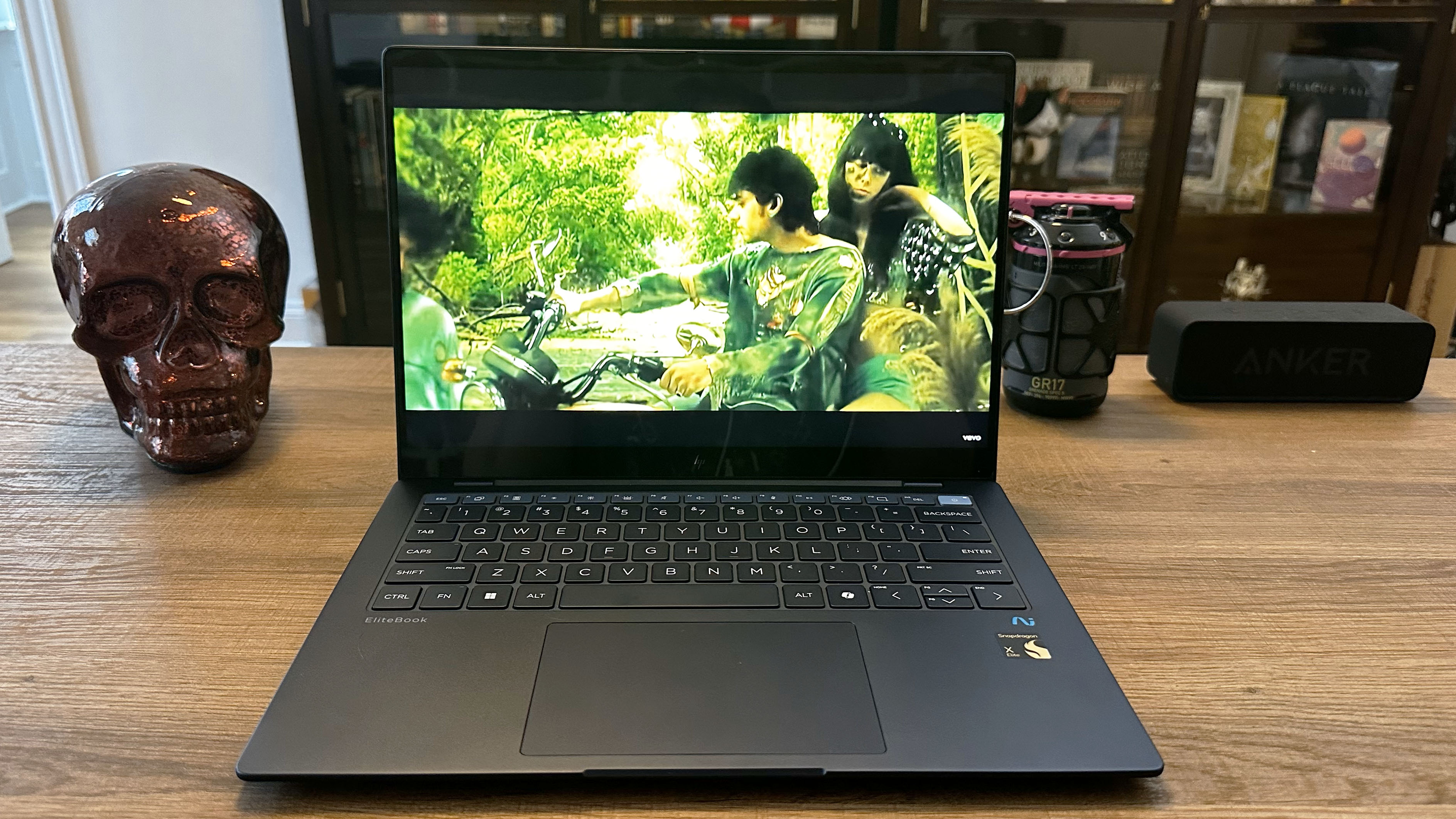
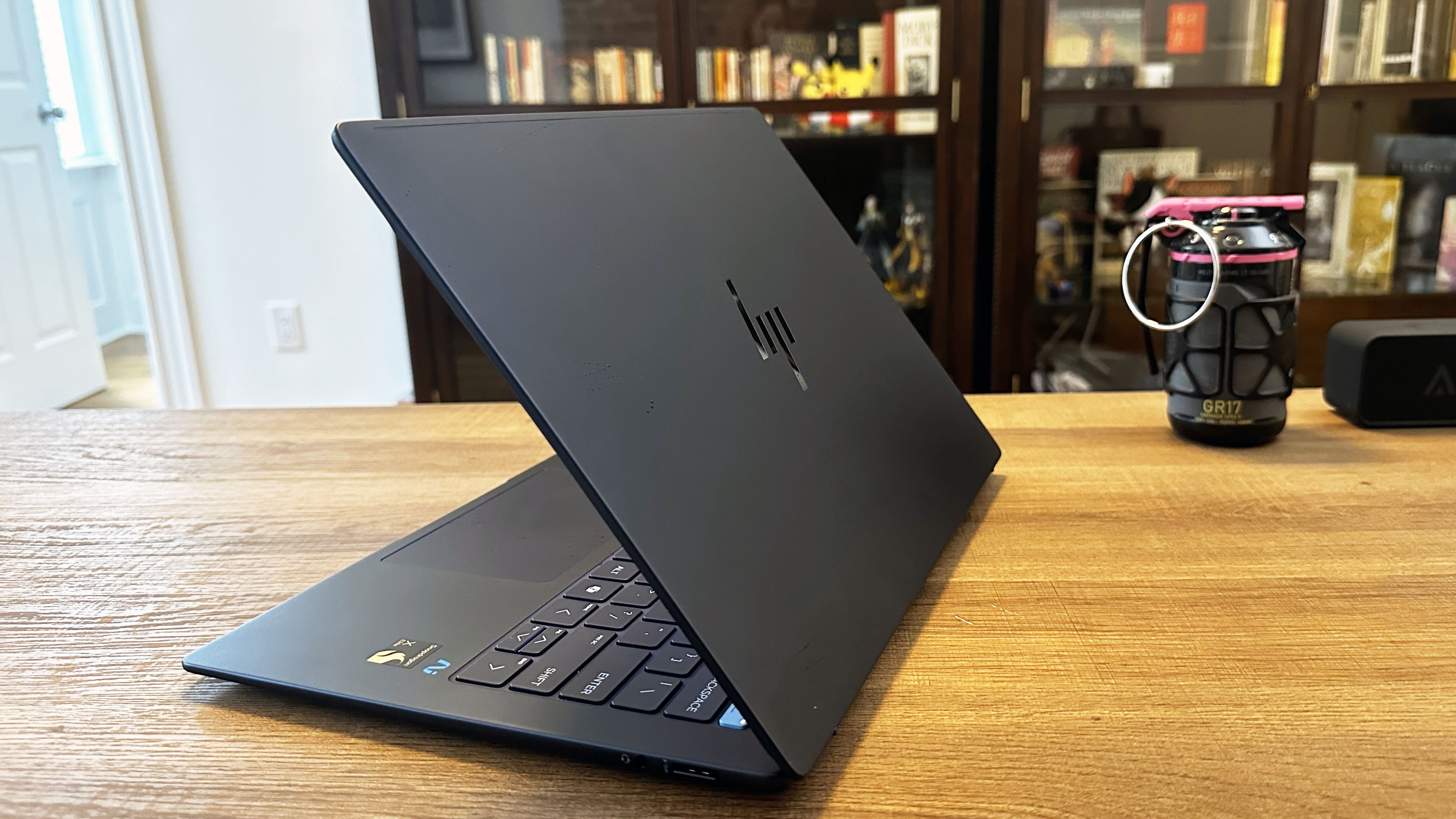
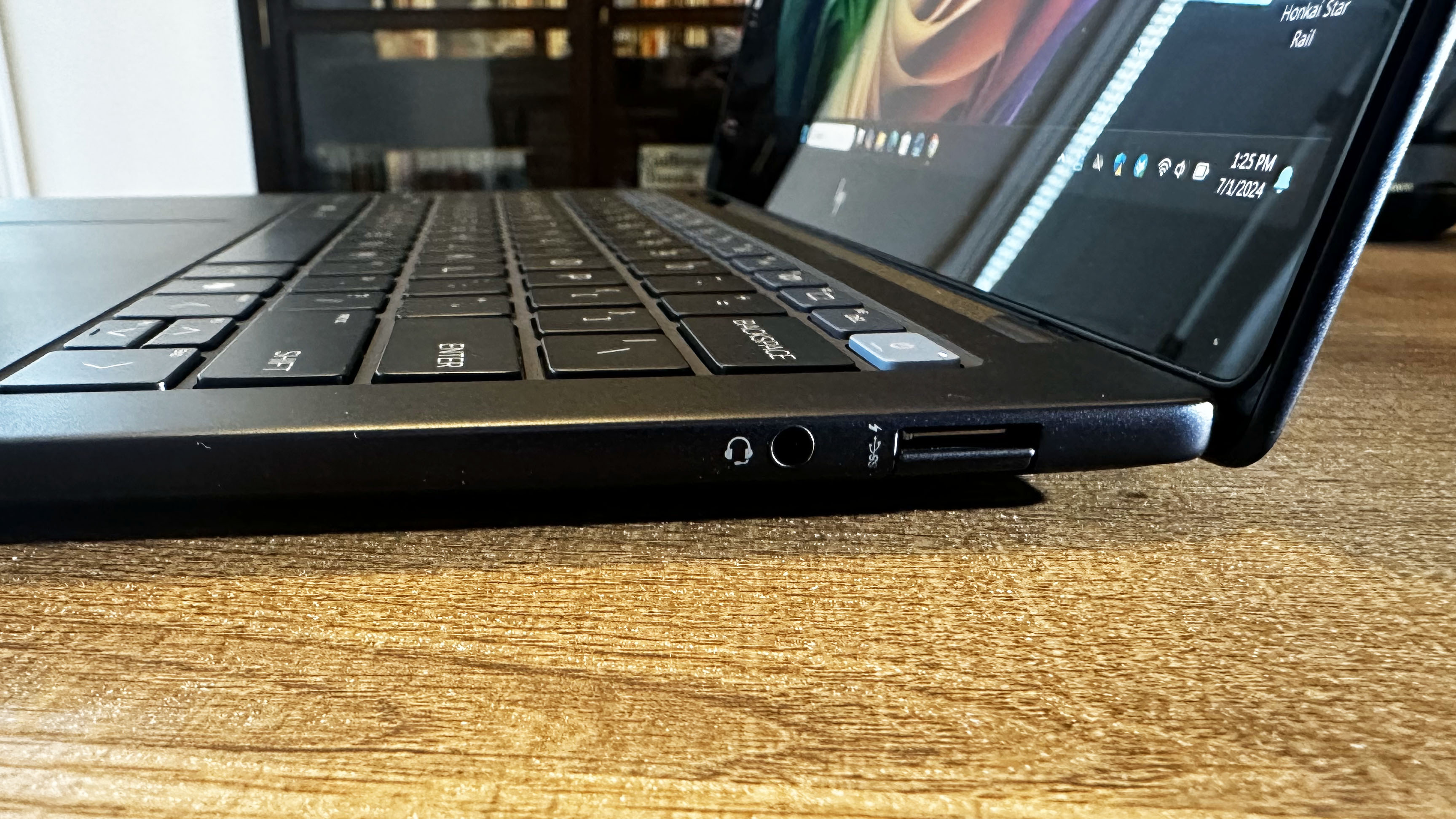
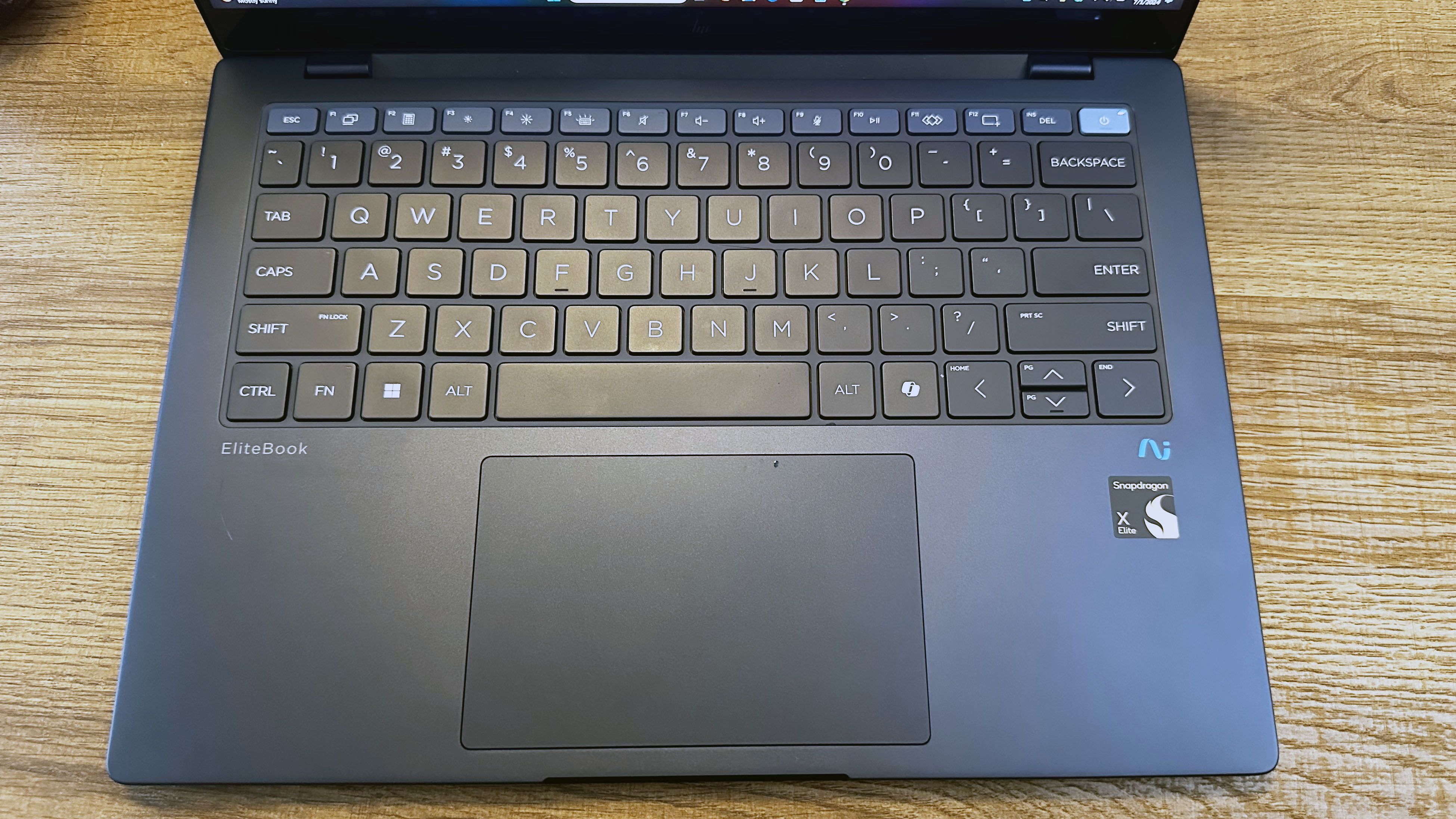
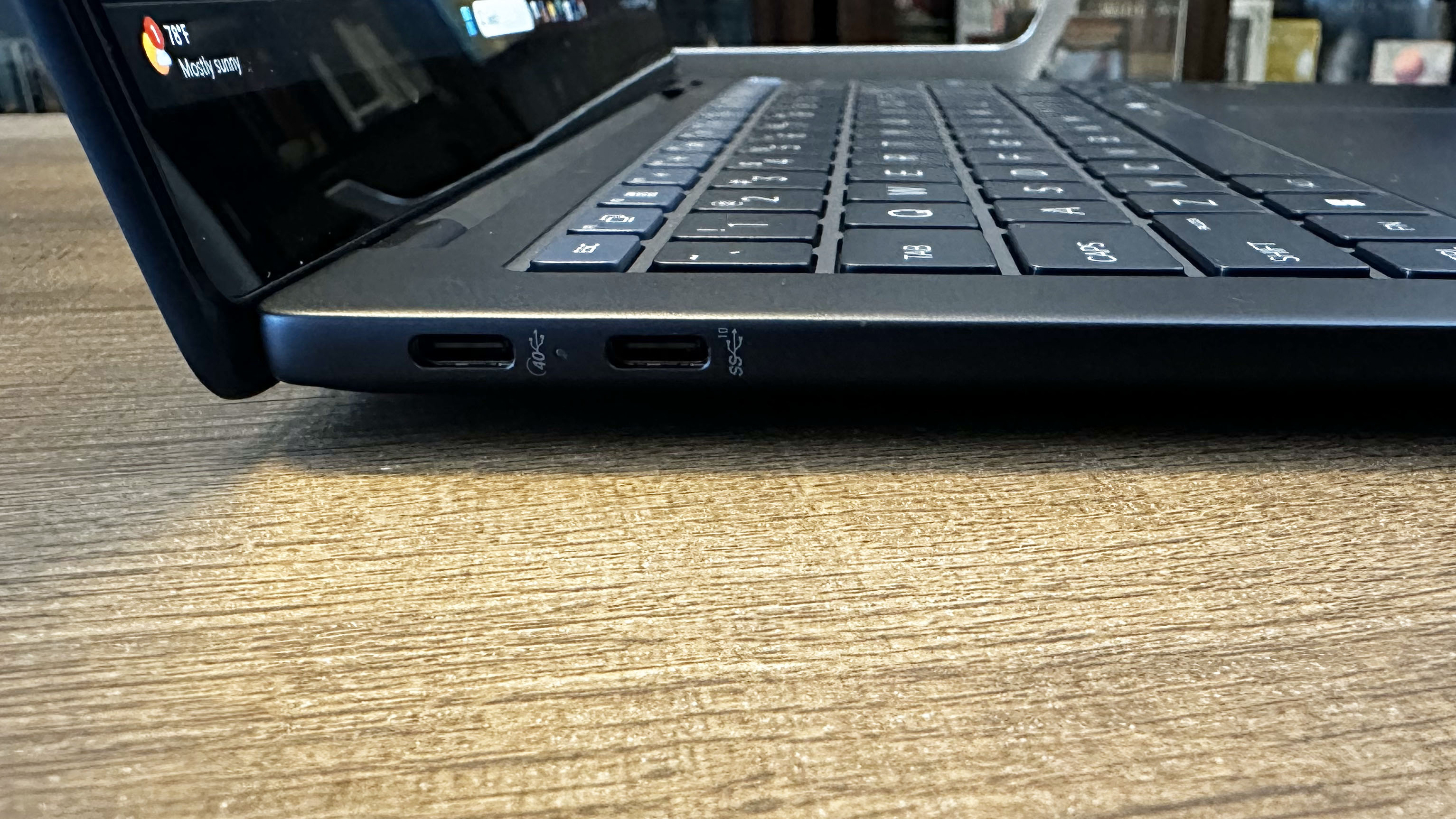
Specifications
Reasons to buy
Reasons to avoid
The HP EliteBook Ultra G1q comes stacked with performance and battery life, two of the most important things for a business-centric laptop. But its vibrant display, sleek design, and small footprint help it climb higher up the ladder.
✔️ You travel a lot for work. At 0.44 inches thick and 2.9 pounds, this laptop is easy to carry, and it should also make taking it out of your bag at a TSA checkpoint less of a headache.
✔️ You need a laptop with a long battery life. This laptop can handle 16 hours of web surfing before it needs to be charged.
✖️ You need stellar integrated graphics. Qualcomm's Snapdragon chips are vastly outmatched by their rivals in this area. And while those can handle casual gaming well, these generally can't.
✖️ You're concerned about app compatibility. While many common apps and programs have native Arm 64 support, if you're using a bespoke program for work, like Prophet 21, you're better off with an Intel-configured laptop.
HP has switched to Arm architecture, becoming more efficient and powerful than its past Intel and AMD variants. If the EliteBook Ultra, HP's first Copilot+ PC for business, can't win you over with its speedy performance, vibrant display, sizeable trackpad, and executive-chic style, its impressive 16-hour battery life might.
Powered by Qualcomm's impressive Snapdragon X Elite processor, backed by Adreno graphics, and a Hexagon neural processing unit, the EliteBook is equipped to tackle a wide range of computing tasks, including demanding AI-based functions — which may mean little to your workflow today but could effectively future proof your machine against a wide range of features heading to AI PCs over the next few years.
The switch to Arm has raised a few issues, mainly because some major applications cannot run natively. However, this is being addressed daily, and many developers are rapidly seeking to adapt their software to suit these new Arm-based platforms.
The EliteBook Ultra is a fantastic laptop with plenty to offer for everything but gaming. Security, speed, style, and superior battery life seal the deal on this hard-working machine. As Laptop Mag reviewer Madeline Ricchiuto writes, "HP has made a fantastic case for why Windows on Arm systems are ideal for business professionals."
See our full HP EliteBook Ultra review.
Best for students
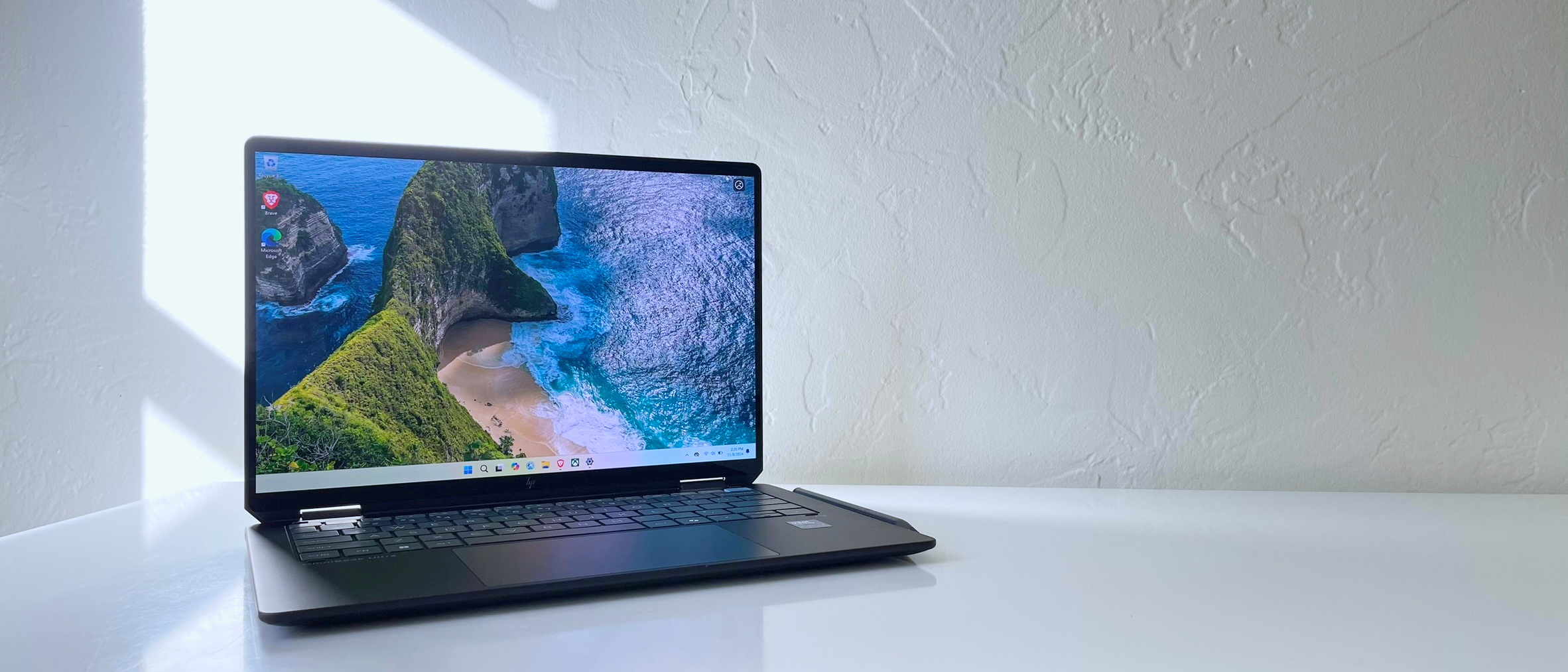
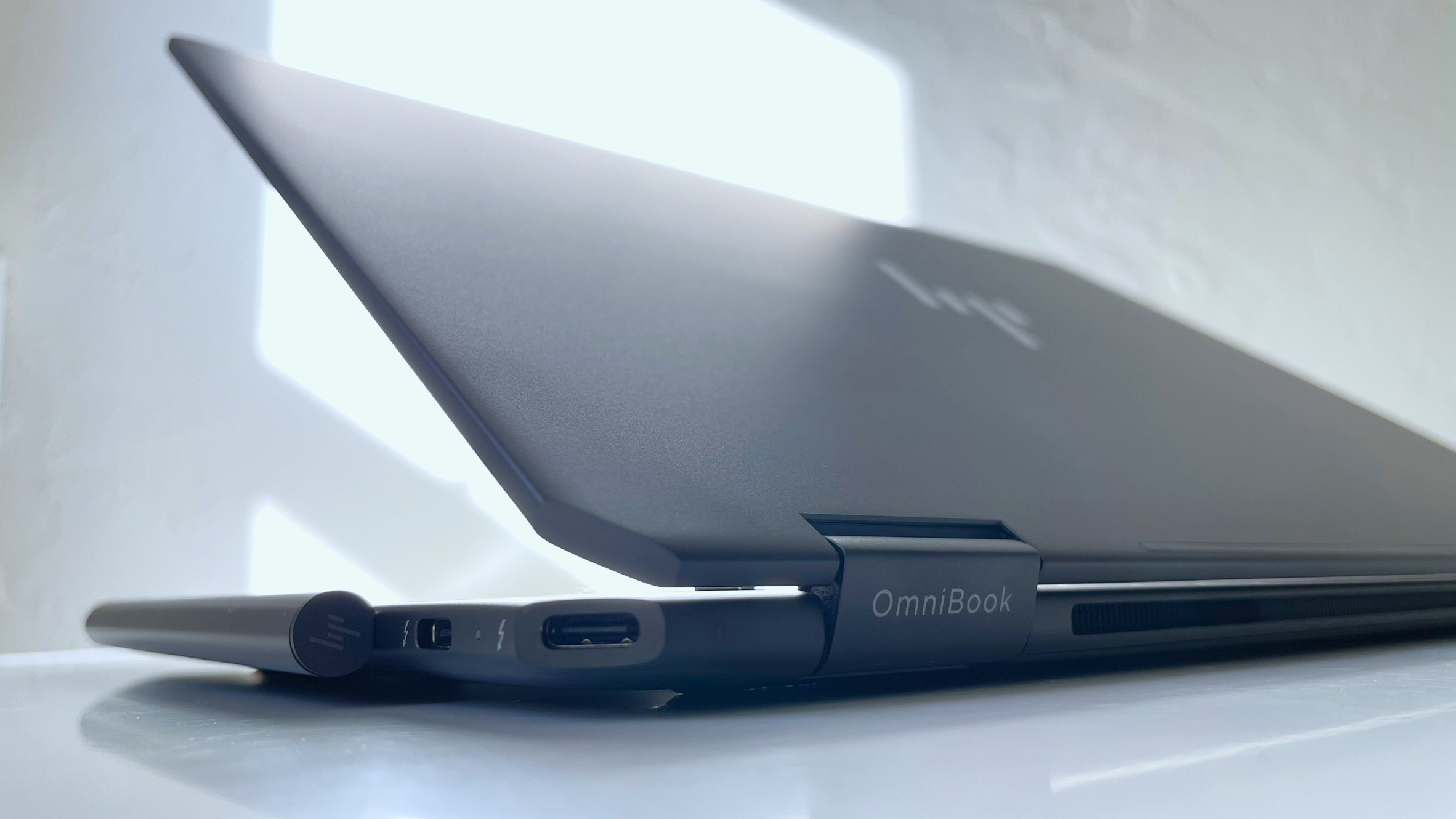
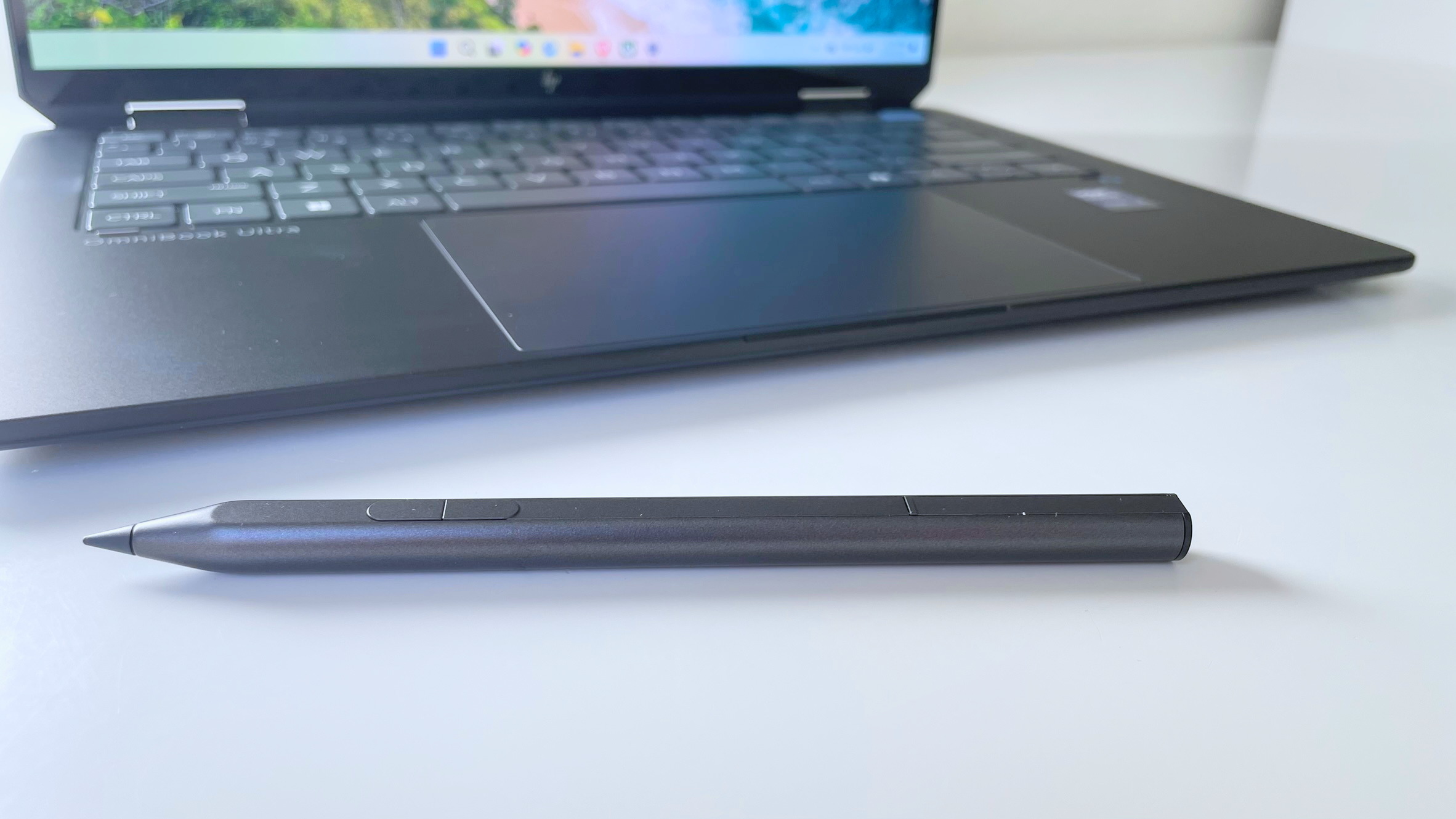
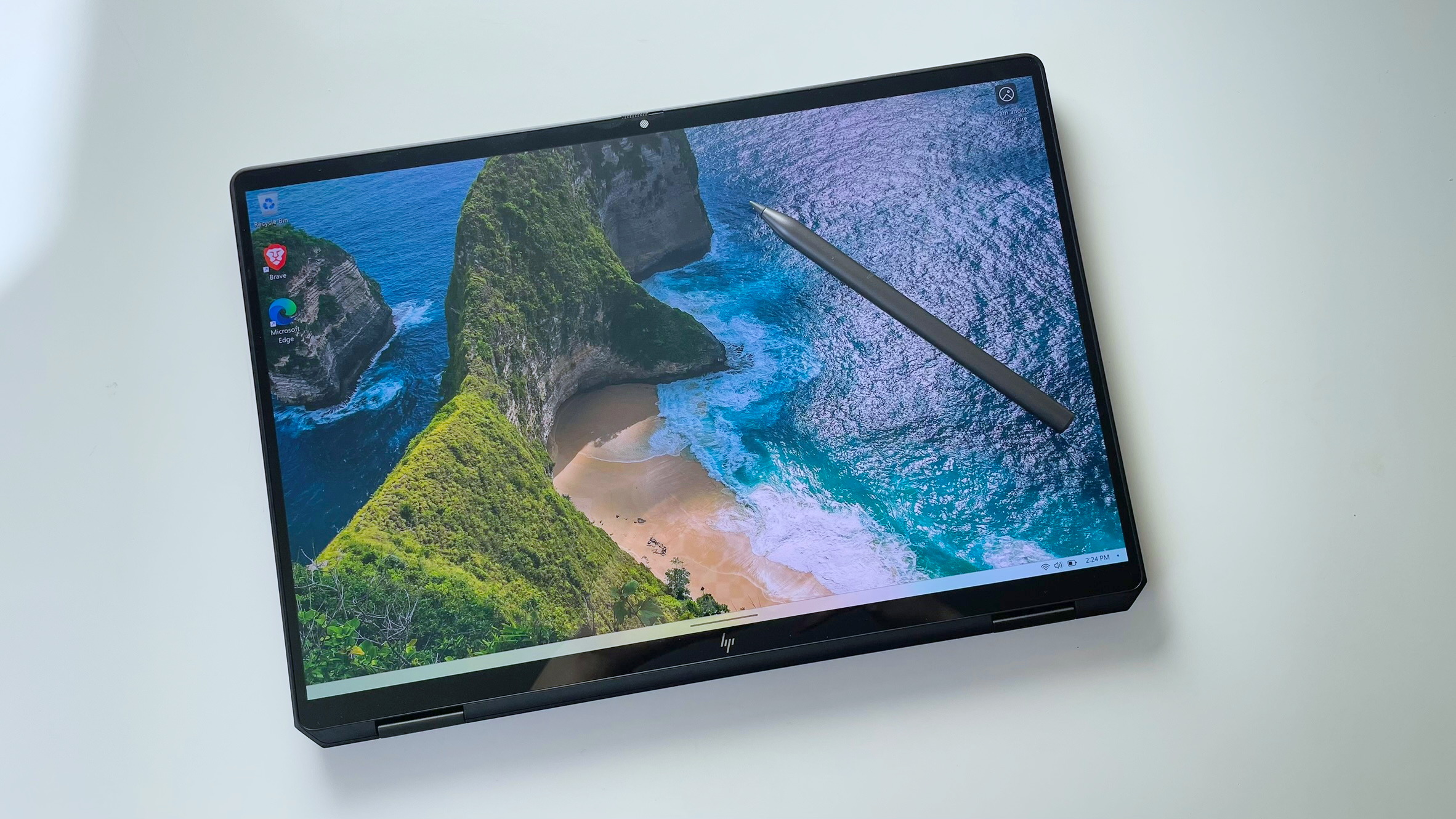
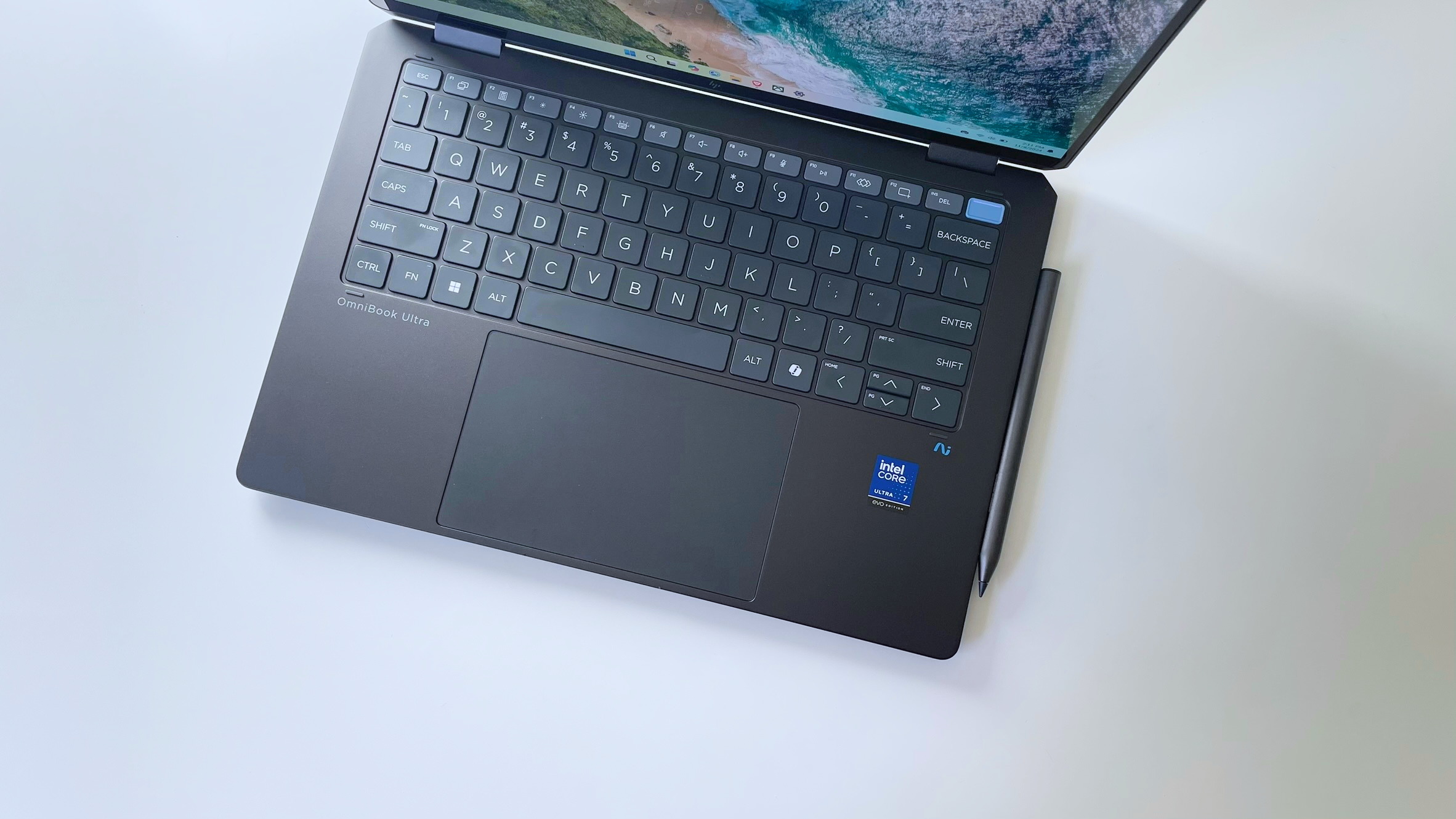
Specifications
Reasons to buy
Reasons to avoid
The HP Omnibook Ultra Flip 14 goes above and beyond the essentials for students. It features a sharp OLED display, a great built-in webcam and microphone, and its integrated GPU handles most games surprisingly well.
✔️ Most of your classes are remote. With a webcam and microphone as good as the ones on this laptop, you probably don't need to invest in something else to participate in class discussions.
✔️ You need a clicky, comfortable keyboard. If you're a college student (especially an English major), chances are you'll write several papers a semester. You'll need a good, reliable keyboard for all the hours you'll spend typing.
✖️ You're a multitasking machine. If you routinely keep many apps and dozens of browser tabs open while trying to create 3D graphics, you might find the processor lacks enough multicore power to run it all smoothly.
✖️ All your peripherals are USB-A. You may need to spend more money than you originally planned on adapters or a docking station or buy new wireless peripherals.
A great laptop can make juggling a full load of classes a little easier for students. With its good performance, long battery life, bright and vivid display — and a built-in webcam and microphone that won't make you look or sound like you're using a computer from the early 2000s — the Omnibook Ultra Flip 14 is the best HP laptop for the job.
The highlight of this laptop is its display. Reaching an average max brightness of 359 nits and covering 84.3% of the DCI-P3 color gamut, it has the specs most students, regardless of major, will need to finish their coursework and enjoy watching their favorite show in their dorm room after a long day. Our reviewer, Stevie Bonifield, notes that the colorful graphics in Donut Country looked great and that the display "kept up well with the rapid pace of combat in Death’s Door."
The Omnibook's webcam and microphone are well-suited for online classes. The webcam accurately captures colors and details, displaying them in a naturally lit room. The microphone captures voices with clarity, even amid background noise.
As I've mentioned in other buying guides and reviews, this laptop's Intel Core Ultra 7 258V processor has slower multicore performance than other laptops with competing chips. This isn't necessarily a deal-breaker, but if you need a laptop that can run or process intensive tasks (like video editing or 3D modeling) as fast as possible, this laptop might be too slow for your needs. However, it can handle visual novels and point-and-click games well!
See our full HP Omnibook Ultra Flip 14 review.
Best workstation
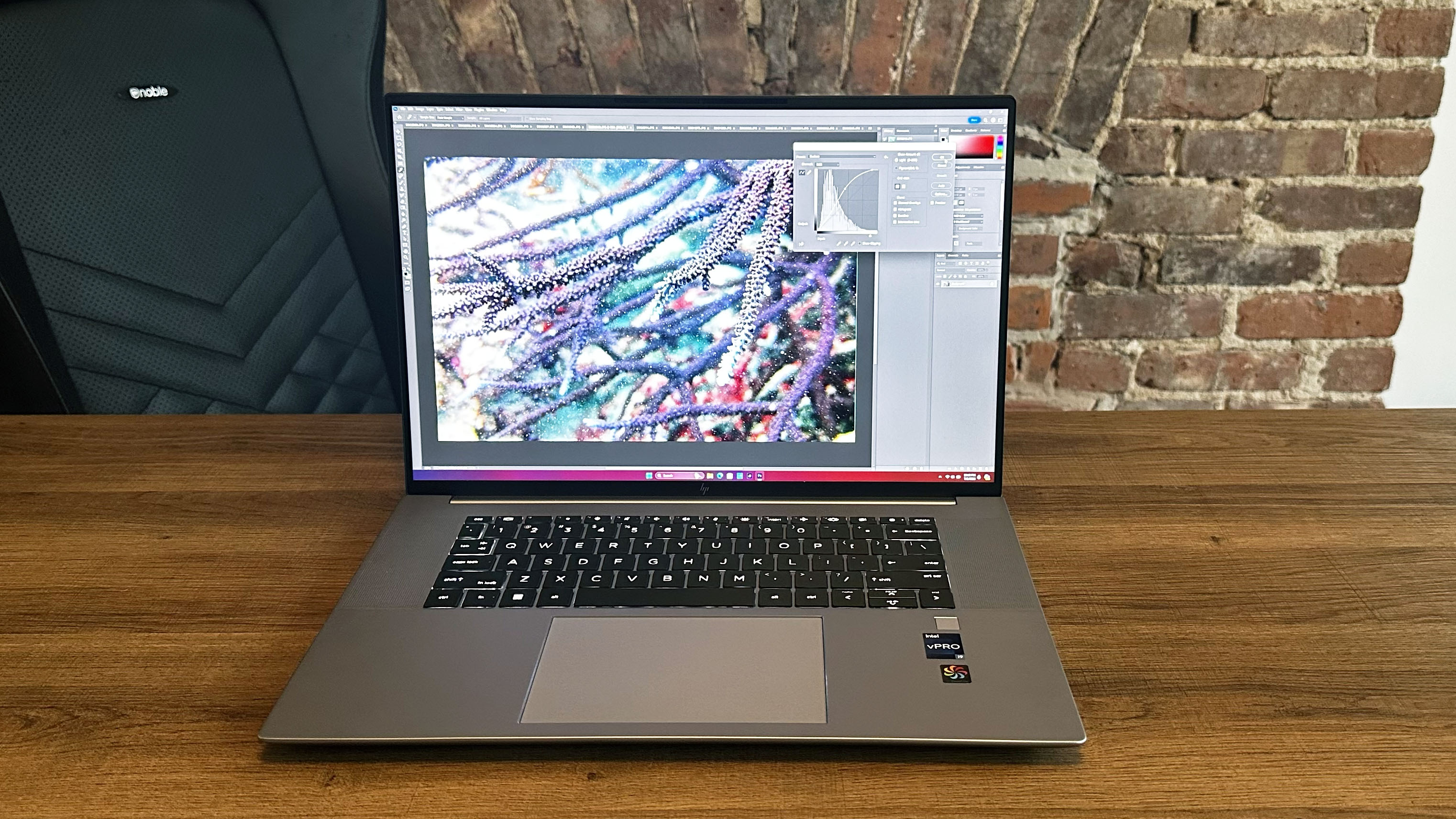
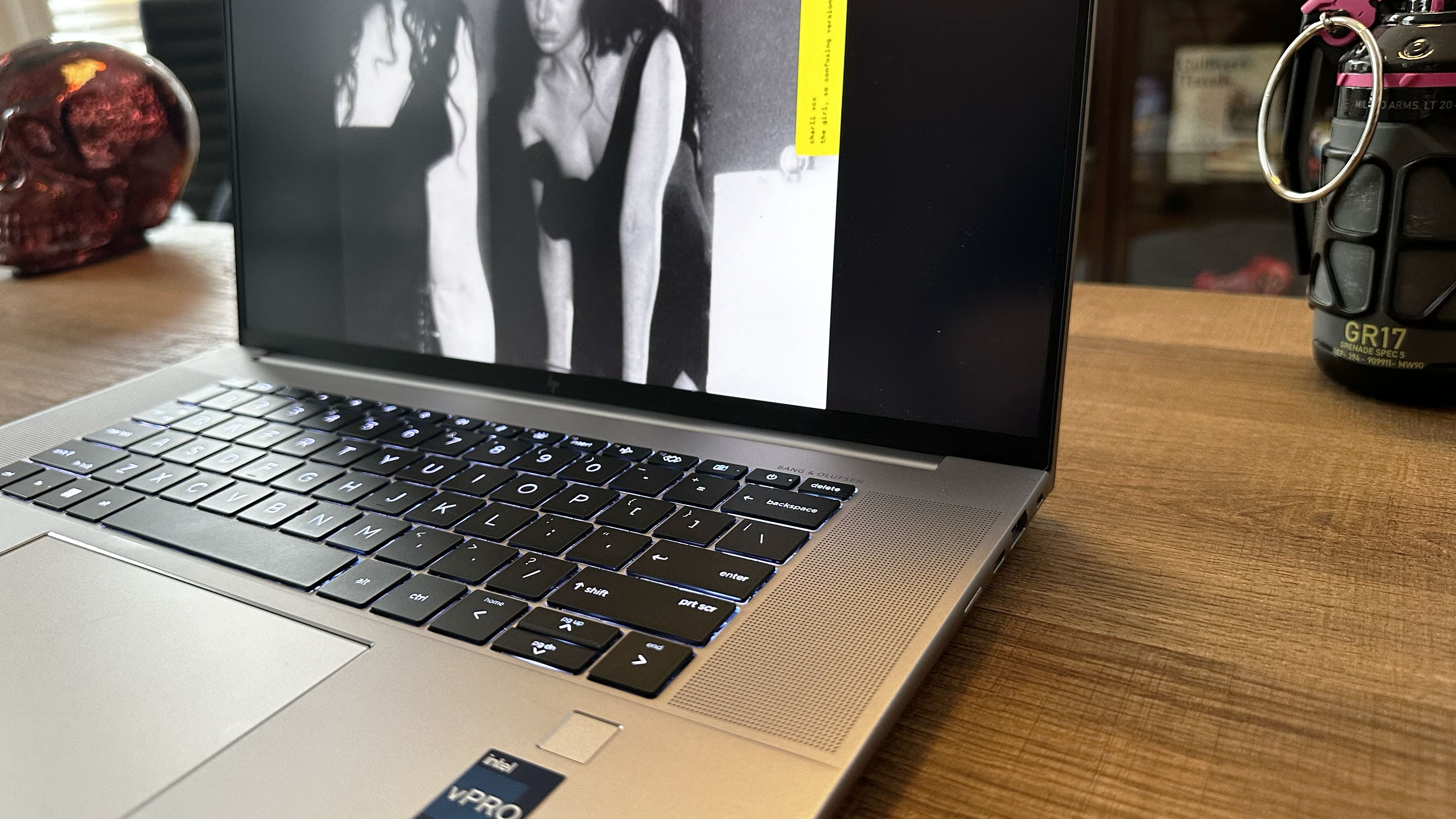
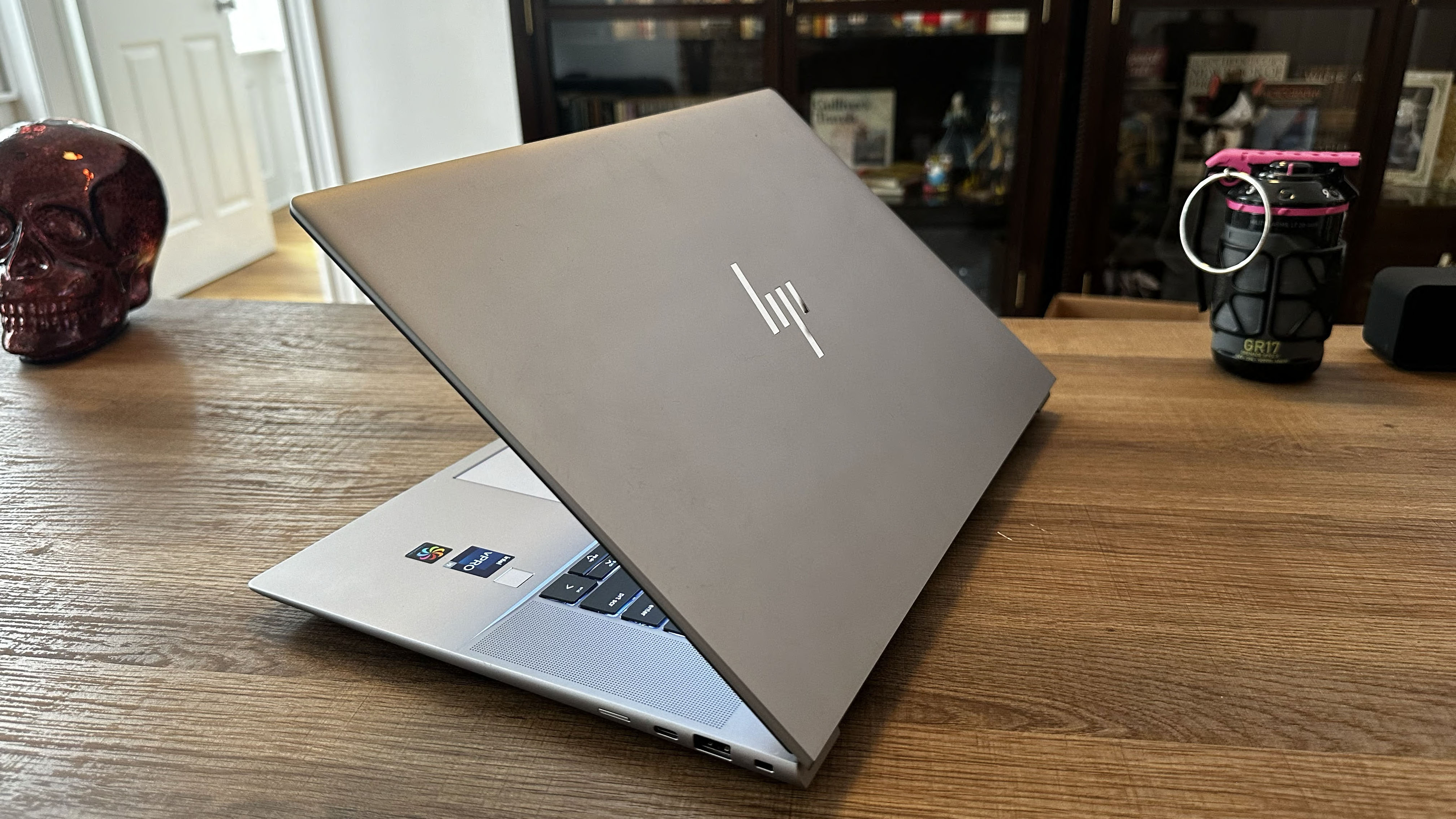
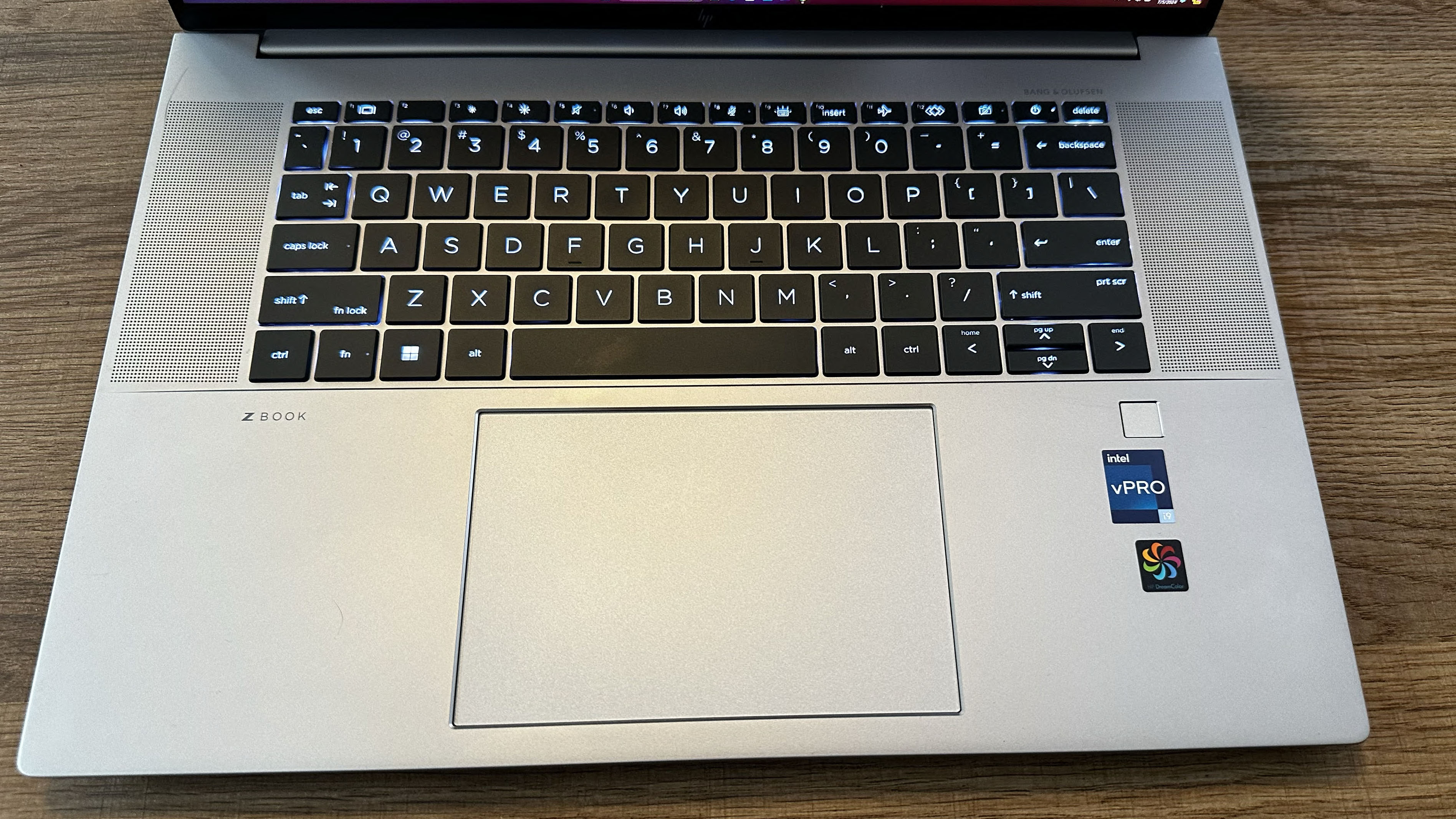
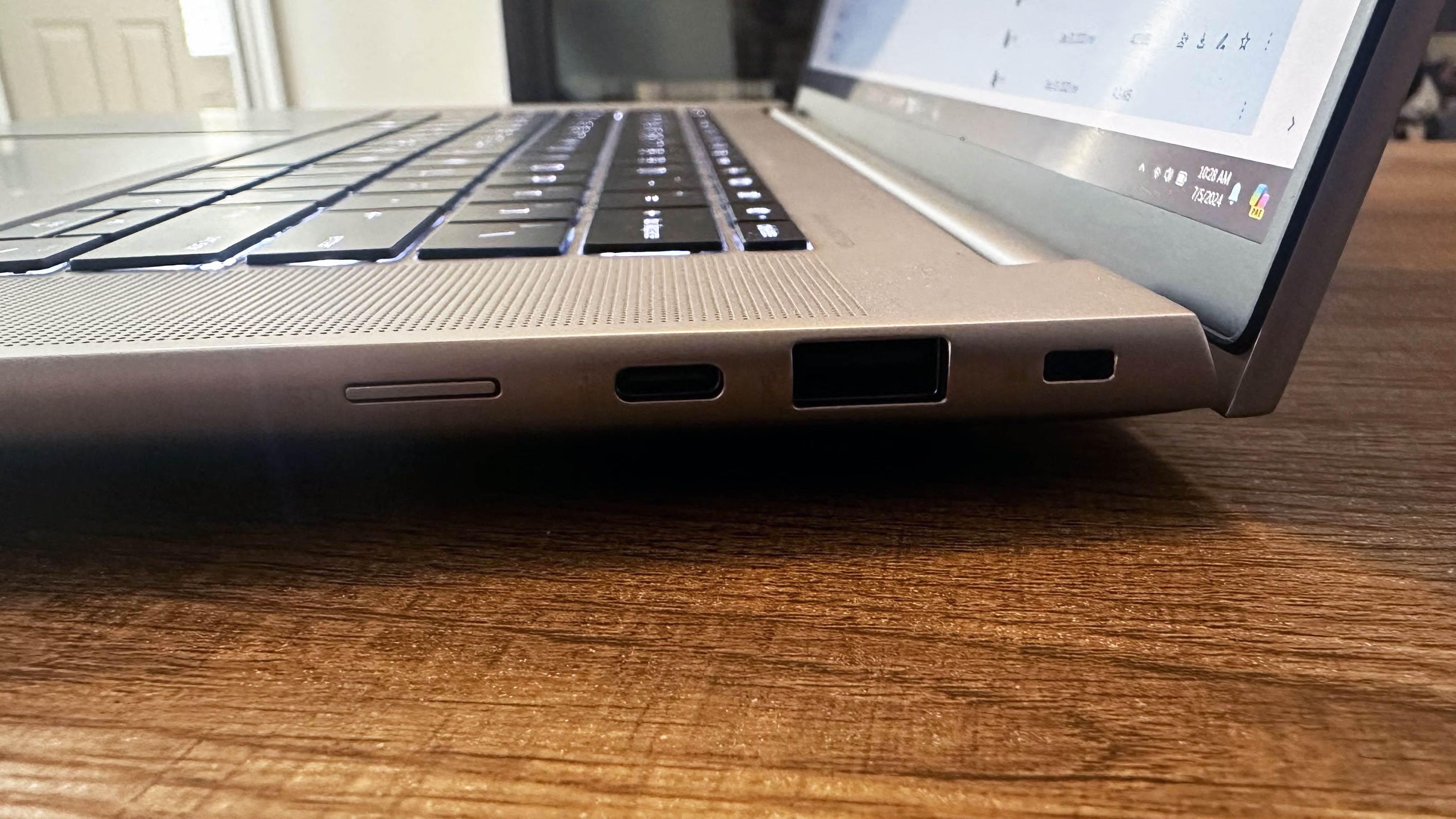
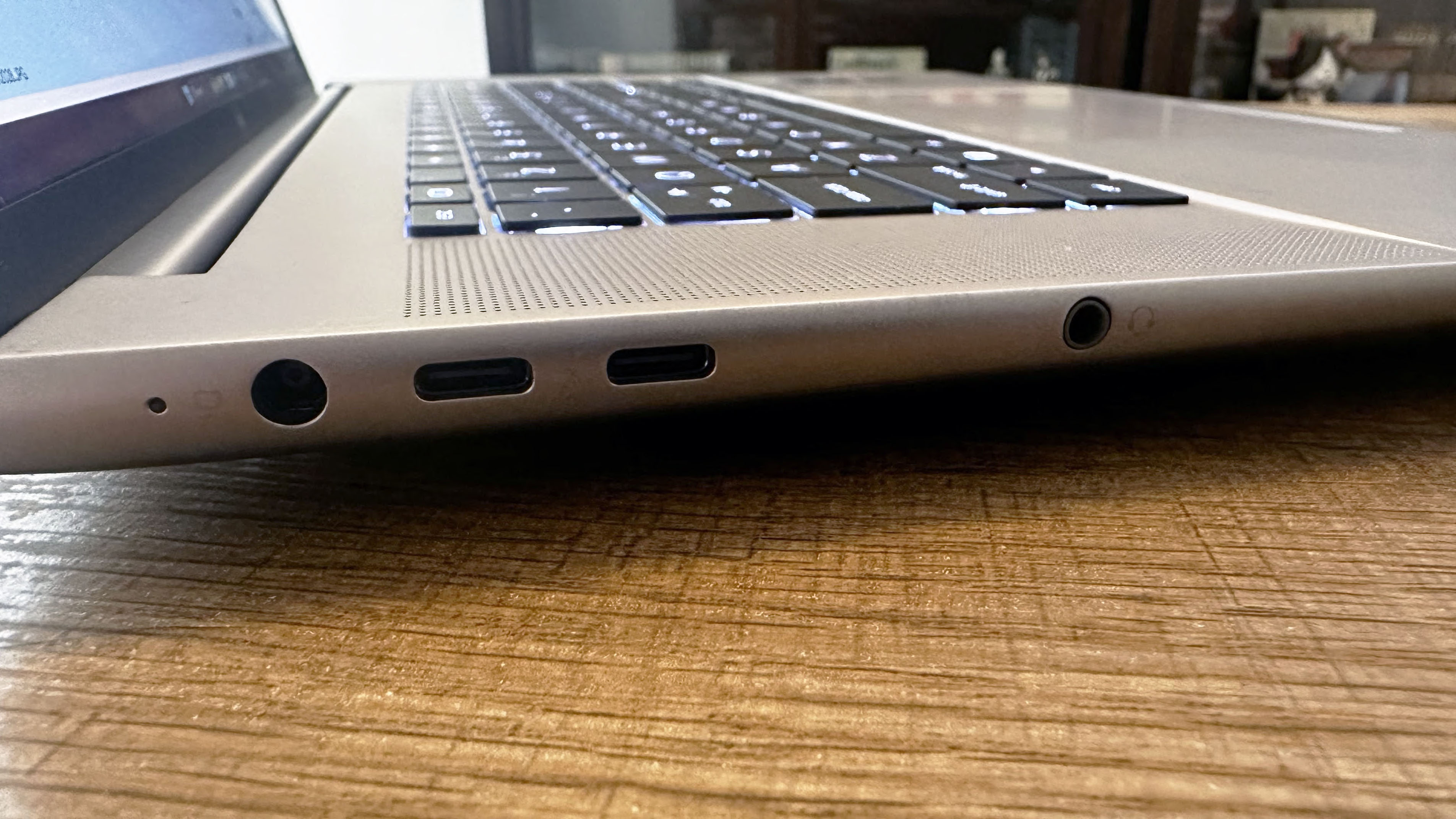
Specifications
Reasons to buy
Reasons to avoid
The HP ZBook Studio 16 G10 has an incredible amount of performance for the heaviest of heavy workloads. Whether that's video editing, 3D design, or data analysis, this laptop has everything — and a high price tag to go with it.
✔️ You need a powerful laptop. And supports design and editing programs that macOS and Windows on Arm don't.
✔️ You need the best display possible. With a 4K resolution, 457 nits max brightness, and covering 117.3% of the DCI-P3 color gamut, this laptop's display is built for professional film editors and 3D animators alike.
✖️ You don't need this much machine. It costs over $4,000, and even the lower-end configurations aren't that much cheaper. If you need something with a discrete graphics card, a gaming laptop might make your bank account cry less.
✖️ You won't compromise on battery life. This laptop lasted just under 6 hours in our tests. There are other workstations from competing brands that last longer.
Portable, powerful, and cool to the touch compared to other Hulk-like workstations, the ZBook Studio 16 is a force to be reckoned with. It's a machine for on-the-go video editors and 3D artists with all the portable horsepower possible — even compared to the other best workstations we've recently reviewed.
It's a multitasking maestro, juggling multiple applications quickly and effortlessly impressed in our lab-based benchmarks, sailing above single-core averages and hanging out at the high-end multicore performance.
Under the hood, the ZBook Studio 16 pairs an Intel Core i9-13900H CPU with an Nvidia GeForce RTX 4000 Mobile Ada Generation GPU for professional performance at the drop of a hat. That's cutting-edge performance blended with workload-shattering computational power, and when paired with 64GB of RAM and 2TB of SSD storage, you have a machine with more punch than your local fight club.
But that rich vein of performance does come at a cost, that being this laptop's actual cost. Workstation laptops are built differently and outfitted for peak performance in a portable form. That can often escalate their price tags to heights the average consumer would avoid. As reviewer Madeline Ricchiuto writes, our review unit was a "nearly fully loaded model that cost almost $9,000." That said, the target market is the enterprise buyer purchasing a new fleet of laptops for their corporation and getting a deep discount for it.
However, a laptop like the HP ZBook Studio 16 G10 could be worth the investment for professionals who need the best hardware to hand at any time and anywhere.
See our full HP ZBook Studio 16 G10 review.
Benchmark comparisons
Click to view data in table format
| Header Cell - Column 0 | HP Spectre x360 14 | HP Envy x360 2-in-1 (2023) | HP EliteBook Ultra | HP Omnibook Ultra Flip 14 | HP ZBook Studio 16 G10 |
|---|---|---|---|---|---|
Geekbench 6 (Higher is better) | 12,358 | 7,748 | 12,717 | 10,877 | 14,532 |
Handbrake time ((MM:SS), lower is better) | 07:30 | 09:19 | 06:40 | 6:37 | 04:37 |
Battery life - Web surfing (HH:MM) | 11:01 | 09:17 | 16:01 | 12:02 | 06:01 |
SSD transfer speeds (MBps, higher is better) | 1,362 | 1,245 | 893 | 1,702 | 2,082 |
DCI-P3 Color Gamut (Higher is better) | 86% | 128% | 84.7% | 84.3% | 117.3% |
Display Brightness (Nits, higher is better) | 366 | 378 | 321 | 359 | 457 |
Hottest temperature (95 degree comfort threshold) | 98 | 79 | 83 | 88.5 | 94.2 |
Recently reviewed
Not every laptop we review makes it into our top selection for buying guides. However, that doesn't mean they aren't worth taking a look at. Below are some of our most recently reviewed HP laptops, if what you find on this list isn't to your taste, be sure to check them out instead.
HP Elite x360 1040 G11 | Intel Core Ultra 7 165H | Intel Arc Graphics | 16GB RAM | 512GB SSD
Score: ★★★★
Pros: Svelte design; superb keyboard and touchpad experience; strong performance; 3-year warranty
Cons: It has the business laptop tax; the display comes with too many caveats; middling battery life
See our full HP Elite x360 1040 G11 review.
HP Envy x360 2-in-1 | Intel Core Ultra 7 155U | Integrated Intel Graphics | 16GB RAM | 1TB SSD
Score: ★★★½
Pros: OLED display available; comfortable keyboard and touchpad
Cons: Sub-par performance and gaming scores; OLED display requires a paid upgrade; mediocre battery life
See our full HP Envy x360 2-in-1 review.
HP OmniBook X | Snapdragon X Elite X1E-78-100 | Qualcomm Adreno | 16GB RAM | 1TB SSD
Score: ★★★½
Pros: Sharp, colorful display; Clicky keyboard; Strong performance; Incredible battery life
Cons: Poor brightness; Slow SSD; Middling graphics
See our full HP OmniBook X review.
HP ZBook Firefly 14 G11 | Intel Core Ultra 7 165H | NVIDIA RTX A500 | 16GB RAM | 512GB SSD
Score: ★★★½
Pros: Responsive, anti-glare display; Great keyboard and touchpad
Cons: Disappointing battery life; Heats up quickly and stays hot
See our full HP ZBook Firefly 14 G11 review.
Choosing the right HP laptop
As one of the top laptop brands, HP has a laptop for every occasion, from premium business laptops to budget-friendly Chromebooks. That extensive selection might make it tough to decide which laptop is right for you, so here's a handy guide to the various model lines offered by HP.
Spectre: Premium, lightweight designs that offer portable power and beautiful displays are hallmarks of HP's best model line.
Envy: If you're looking for a laptop with attractive design, vibrant displays, and premium audio, HP's Envy laptop line has style to spare.
Elite Dragonfly: HP's premium business laptop, the Elite Dragonfly series, sports a stunning, premium design that's both durable and lightweight. Expect the latest, top-of-the-line features and components and a sky-high price to match.
EliteBook: HP's business laptops have IT support, strong performance, and premium designs. For better portability, the thin-and-light EliteBook Folio is the name to look for. If you go with this line, check out our five essential accessories for EliteBooks.
ProBook: For business-capable laptops without the premium price tag, the ProBook line delivers no-nonsense designs and performance for everyday office productivity.
ZBook: For professionals needing workstation-class performance, HP's ZBooks offer all the power you need, along with robust security and rugged designs.
Laptop: If HP's "Laptop" line sounds generic, that's because it is, but these simple designs offer everyday performance that won't break the bank.
Pavilion: Look no further than the affordably-priced Pavilion for a happy medium between the bland, budget-friendly "Laptop" line and HP's premium Envy laptops. These mid-range laptops come in all shapes and sizes but offer decent performance with solid feature sets.
Omen: HP's gaming brand, Omen, has a bit more pizazz and graphics power, delivering a decent gaming experience for (relatively) reasonable prices.
Victus: Another of HP's gaming laptops, focusing on striking a balance between performance and value.
Stream: For a Chromebook-style laptop that still offers familiarity with the WIndows operating system, check out HP's brightly colored, ultra-budget Stream laptops.
Chromebooks: Ranging from $300-600, the HP Chromebook line offers Google's Chrome OS in several well-made laptops.
FAQs
Q: Why should I buy a HP laptop?
A: HP is recognized for its value, so its extensive catalog often includes reasonably affordable laptops.
More than this, they're a well-known brand with a reputation for providing quality laptops, peripherals, and accessories, especially in their premium lines.
Peace of mind comes with buying an HP product, whether from dependable warranty backings or the assurance that the company has been a major player in the laptop market since the 1970s.
Q: What are HP laptops best for?
A: That depends entirely on what kind of laptop you're looking for. HP's catalog of laptops is vast and varied, offering devices that suit everything from business to productivity and even gaming.
What's most important about HP laptops is knowing which one will best serve your needs. For a more in-depth look at choosing between HP's many laptop lines, read the section below for more, or check out our article: Which HP laptop is right for you? Why to buy the Spectre, Envy, ZBook, or OMEN for a more detailed look at each family of laptop.
Q: What is a Copilot+ PC?
A: Microsoft has specific requirements for what it considers a Copilot+ PC. One of those requirements is that a laptop's processor must have an NPU capable of reaching at least 40 TOPS to run more advanced Windows AI features like Recall, Automatic super-resolution, and Live Captions.
Copilot+ PCs have a Qualcomm Snapdragon X Elite or Plus, an Intel Core Ultra 200V series, or AMD Ryzen AI 300 series processor. However, the advanced AI features are only available on Snapdragon laptops—a free update for Intel and AMD laptops continues to roll out through early 2025.
Q: How is a Windows on Arm laptop different from a regular (x86) Windows laptop?
A: Windows on Arm laptops are configured with a Qualcomm Snapdragon X Elite or Plus processor. An Intel or AMD processor powers laptops with the x86 version of Windows. Each Windows version uses a different instruction set (ARM or x86), so it needs a processor that can run it.
For most people, using one version of Windows or the other shouldn't be an issue. However, depending on what apps you use daily, some might not be compatible with Windows on ARM. App compatibility is growing, but it's best to verify what you need will work before buying one of these laptops.
Q: I already have a stylus; will it work with one of these laptops with a touchscreen?
A. That depends! Not all touchscreens have stylus support. The ones that do might not support the same type of pens. To be sure, we recommend checking the manufacturer's website for both the laptop and the stylus.
This will help you determine what pen protocols the stylus and laptop support. The two main ones are Microsoft Pen Protocol (MPP) and Wacom AES. They're not mutually compatible, but some pens support both, while others only support one.
How we test HP laptops
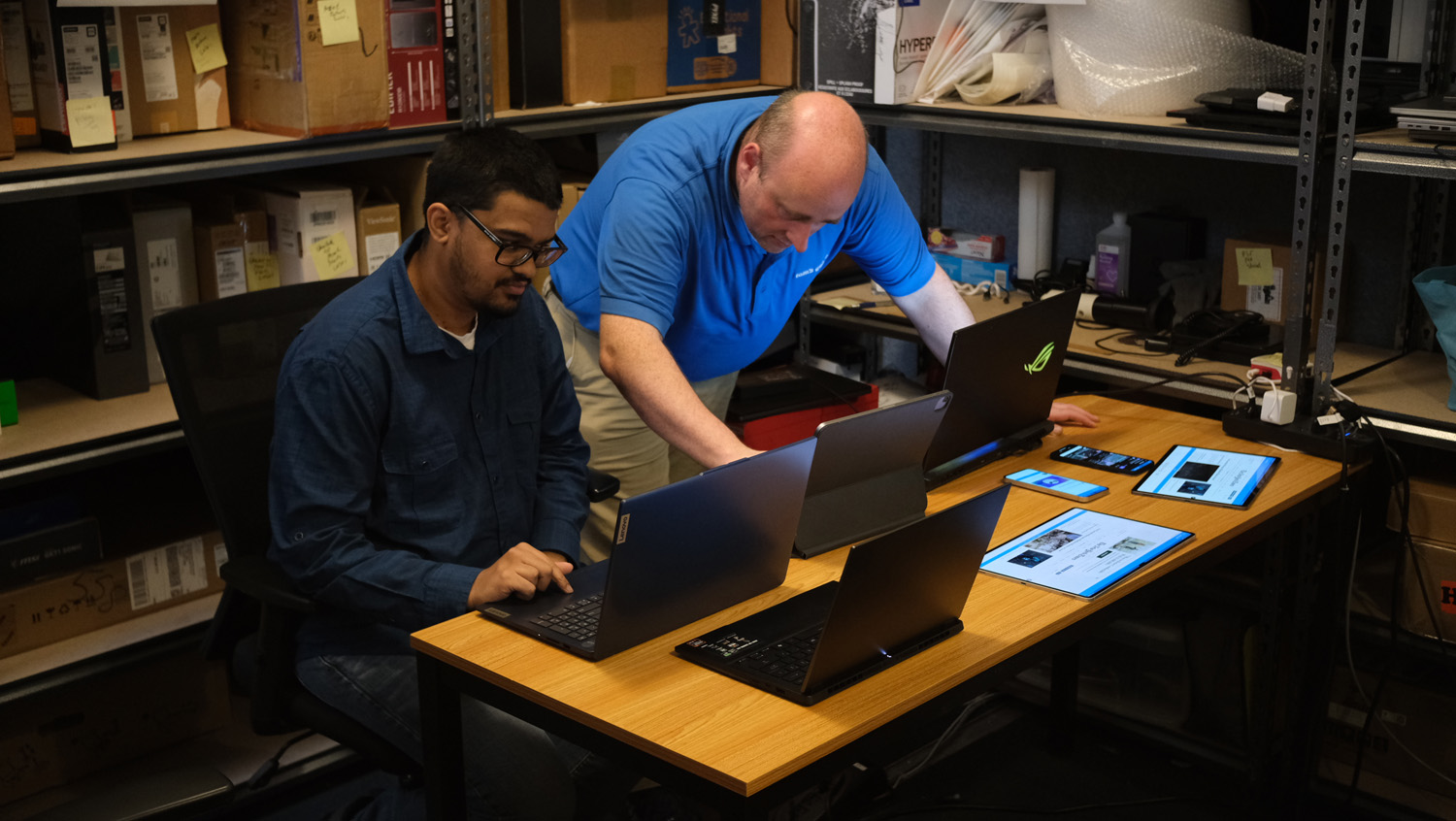
We put each laptop through extensive benchmark testing — both synthetic and real-world — before they end up in the hands of our reviewers. We evaluate each aspect of the laptop, including its performance, battery life, display, speakers, and heat management.
In our benchmark testing, we use a Klein K10 colorimeter to detect the brightness and DCI-P3 color gamut of the laptop's display. For performance testing, we run the laptop through a gauntlet of benchmarks, including Geekbench 6, PugetBench for Adobe applications, and 3DMark professional graphics tests.
To determine real-world performance, we convert a 4K video to 1080p resolution and duplicate a 25GB file. Our real-world graphics test is Cid Meier's Civilization V: Gathering Storm benchmark at 1080p resolution and Medium graphics. We also run heat tests by playing a 15-minute full-screen video and measuring temperatures in different areas of the laptop.
For our battery test, we continuously web-surfed over WiFi at 150 nits of brightness. MacBooks and premium Windows 11 laptops that last more than 10 hours are good, whereas gaming laptops and workstations that can stay powered longer than 5 hours deserve praise.
We complement these tests with extensive hands-on testing from our reviewers, who critique everything from the laptop's materials to the feel of its touchpad.
See this page on How We Test Laptops for more details on our benchmarking procedures.
Why trust Laptop Mag?
Laptop Mag reviews over a hundred different laptops every year, from paperweight ultralights to everyday workhorses to lumbering gaming notebooks that scorch the frame rates of even the hottest AAA games. We're not just experts in the laptop field; we go one step further by meticulously testing smartphones, tablets, headphones, PC accessories, software, and even the latest gaming technology.
We are 100% independent and have decades of experience to help you buy with confidence. In fact, Laptop Mag has been testing and reviewing products for three decades, and we continue to deliver trustworthy reviews you can rely on.
Our experienced team of writers and editors scour the available information about the laptop and put it through its paces to determine which is best for you. But before they start, the testing team subjects each system to a rigorous regimen of synthetic and real-world tests to see how a system handles the type of work and games you’re most likely to throw at it.
Our editorial trustworthiness is enforced by one of the world's largest technology publishers, Future Publishing. As a company, we have unrivaled experience across every tech sector — and we're the group's specialist for all things mobile tech.
Get The Snapshot, our free newsletter on the future of computing
Sign up to receive The Snapshot, a free special dispatch from Laptop Mag, in your inbox.

Joanna Nelius is a contributing writer to Laptop Mag. She has reported on and reviewed laptops for The Verge, Gizmodo, PC Gamer, and USA Today.
- Rael HornbyContent Editor
